There was a time when John Wayne was considered the quintessential American guy. You can attribute this to the rugged, masculine persona that he took on both in front of the camera and away from it. The actor is best known for starring in war movies and Westerns back in the day. However, there is one question that so many people want to be answered. How come the actor did not serve in the Second World War? We are sure that the answer is going to take you by surprise!
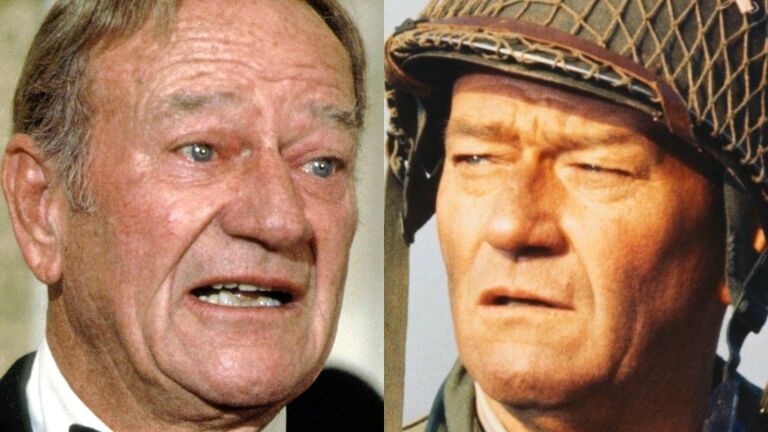
The Real Reason John Wayne Did Not Serve In The Second World War
They Were Called Draft Dodgers
What makes it so shocking is that this lack of experience might have affected his career for the worse. In the ‘40s, men called “draft dodgers” were frowned upon by many people. Wayne had been surrounded by folks who enlisted in the war and did something for the war effort. Among others, Clark Gable, Jimmy Stewart, and Henry Fonda spent some time in the military. But was he a draft dodger in the first place?
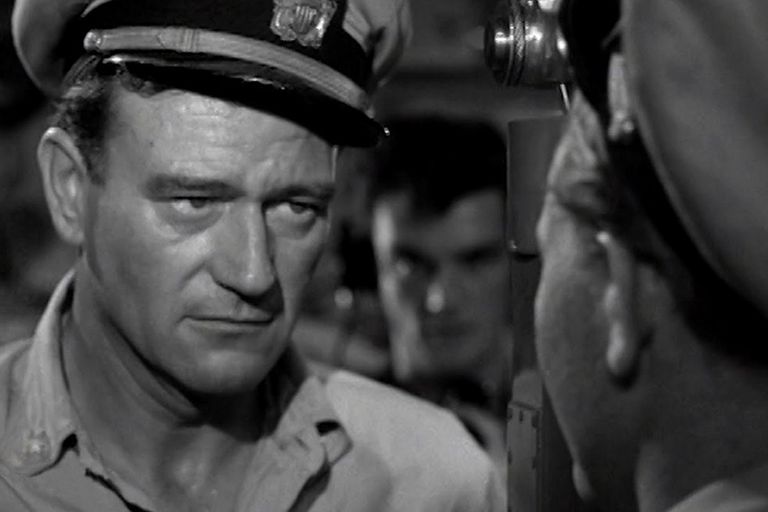
They Were Called Draft Dodgers
Why He Did Not Enlist
Maybe he wanted to serve but could not for one reason or another. It is also possible that he could not bring himself to leave the Hollywood life to serve in the military. Who knows, maybe the answer is a combination of those things. In the end, the real reason for his lack of military service is controversial.
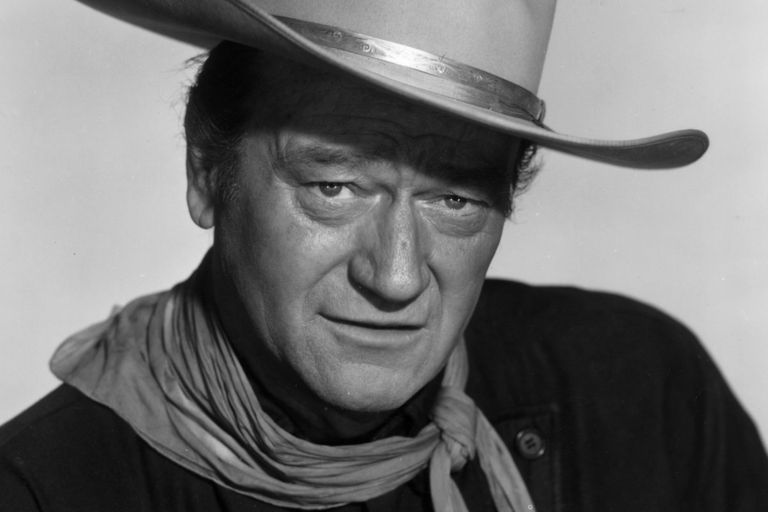
Why He Did Not Enlist
His Persona Was Carefully Constructed
You can say that his public persona had been constructed with great care. His fans would know that the star was not born with the name that everyone calls him. The truth is that the real name of John Wayne is none other than Marion Mitchell Morrison. He got the “Duke” moniker after his childhood dog.
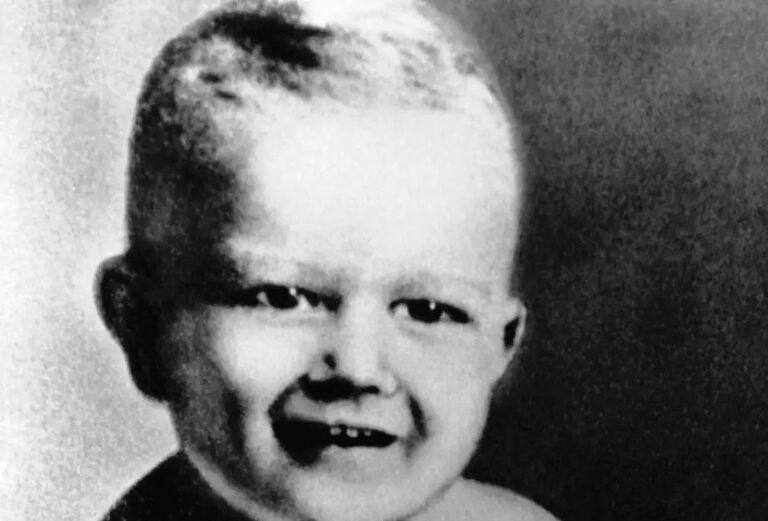
His Persona Was Carefully Constructed
Named After His Grandfather
He was named after his granddad, who himself served in the American Civil War. The older man was no more than a teenager when he enlisted in the Union Army. In combat, he sustained a couple of injuries. On top of that, he was the only Union soldier to survive the Battle of Pine Bluff in 1862.
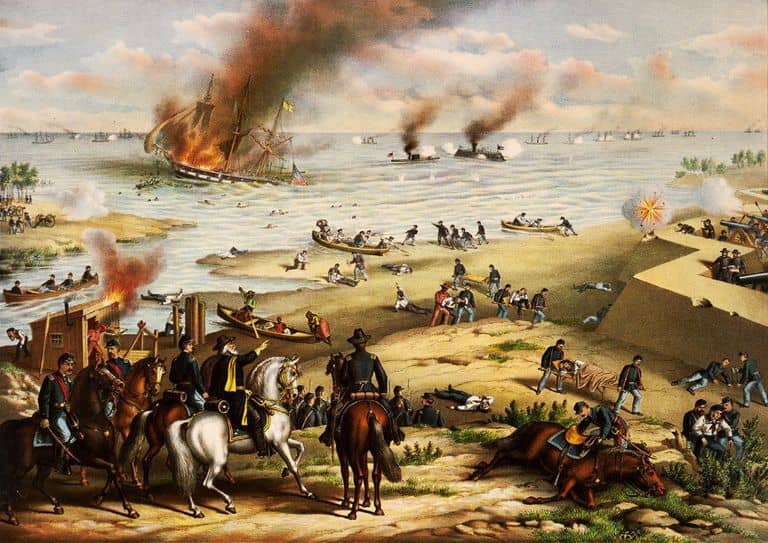
Named After His Grandfather
A Bullet In His Head
It looked like the older Marion Mitchell Morrison had to live with a bullet stuck in his head all his life. This caused him headaches every now and then. After leaving the army, he married, moved to a farm, and had four children. Toward the end of his life, he had been in such bad shape that they had to put him in a sanatorium. The grandson who had his name came to visit him sometimes.
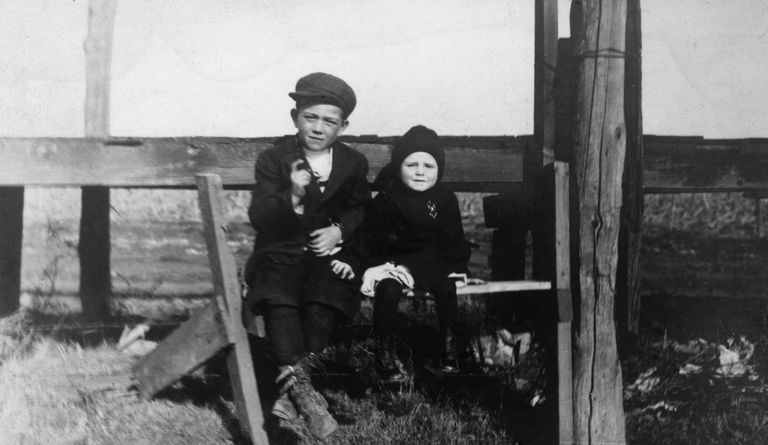
A Bullet In His Head
Time To Choose A New Name
We wonder if young Marion Morrison thought about how awful wars are when he visited his grandpa. In any case, the actor did not just take his real name from the old man but part of his new name as well. To be specific, Wayne is a reference to Anthony Wane, who was a general during the Revolutionary War.
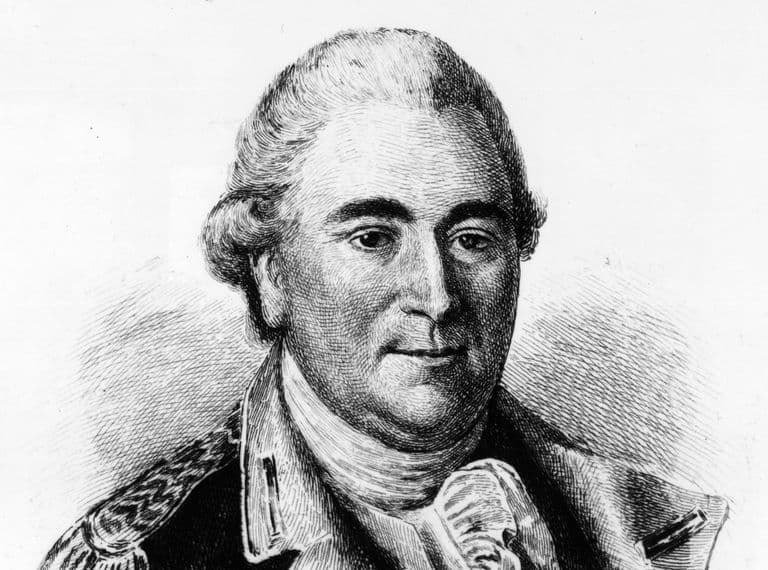
Time To Choose A New Name
He Did Not Pick It
Just so you know, Wayne did not get to pick the screen name all by himself. In fact, it was chosen for him by Winfield Sheehan and Raoul Walsh, director and Fox Studios executive respectively. Prior to this, he went by Duke Morrison. After a little while, he got more comfortable in the persona of John Wayne.
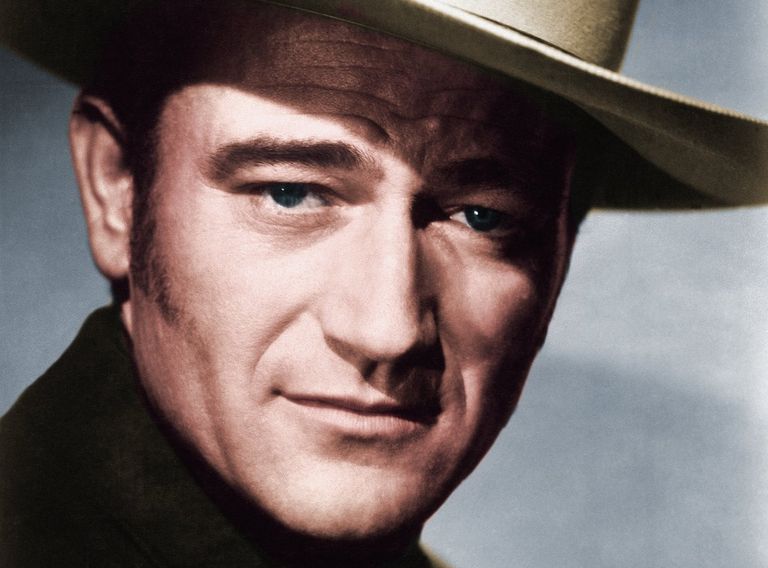
He Did Not Pick It
Getting His Big Break
At first, John Wayne starred in a series of B movies. It was a good thing that he earned his big break in Stagecoach by John Ford. The director wanted to cast the actor as he knew that the young man would be a big star. It turns out that he was got that right! The film propelled Wayne into stardom.
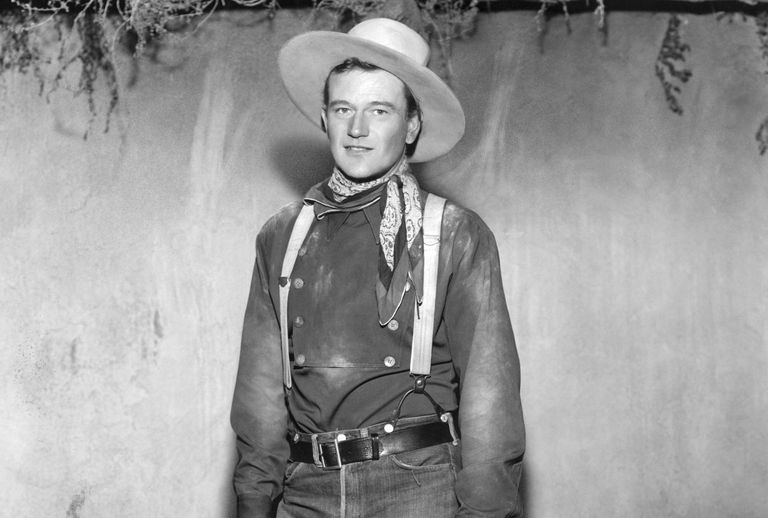
Getting His Big Break
They Looked Down On Him
Regardless of how much fame and success John Wayne saw, there were people who thought little of him for shirking his duties. For one thing, it did not impress John Ford. It is said that the filmmaker had been critical of the actor for going on with his acting career while there was a war going on.
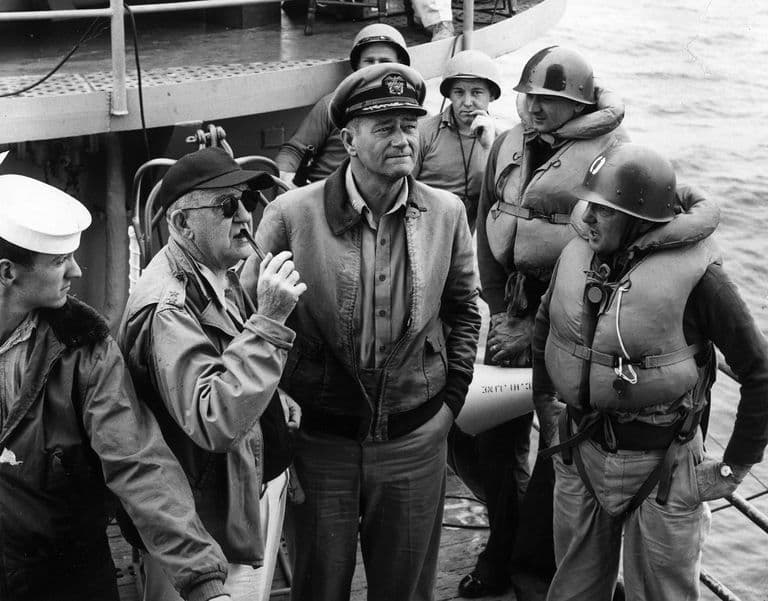
They Looked Down On Him
The Director Was Not Pleased
In fact, there is even a story in which the director had been mad enough to humiliate John Wayne in front of the film crew. The actor was cast to play a soldier in They Were Expendable even though he had no military experience. As they were taping, Ford said, “Duke, can’t you manage a salute that at least looks like you’ve been in the service?” This made Wayne walk out of the film set in anger.
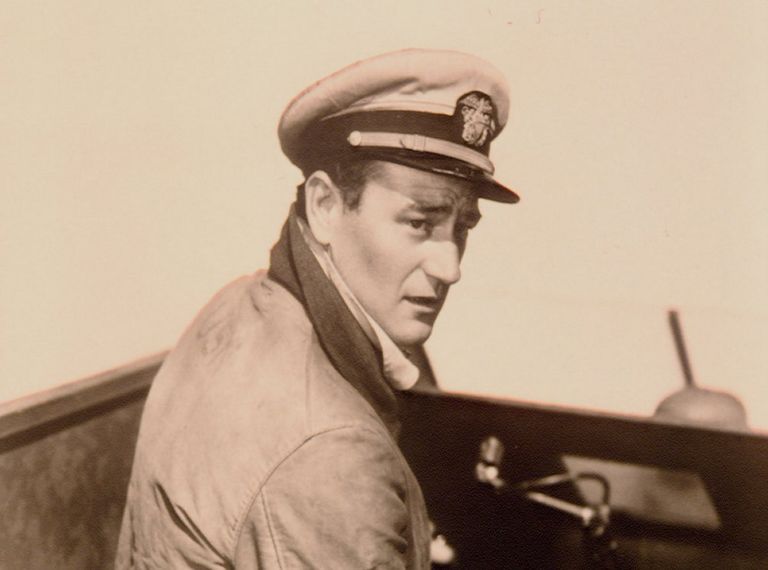
The Director Was Not Pleased
Reluctance To Sign Up
Considering how difficult the military life is, we can see why anyone would be reluctant to join in on the fight. After all, it is always going to be dangerous and risky no matter what. While the bravery of those who enlist is admirable, it is not hard to understand why some people would rather not sign up to fight.
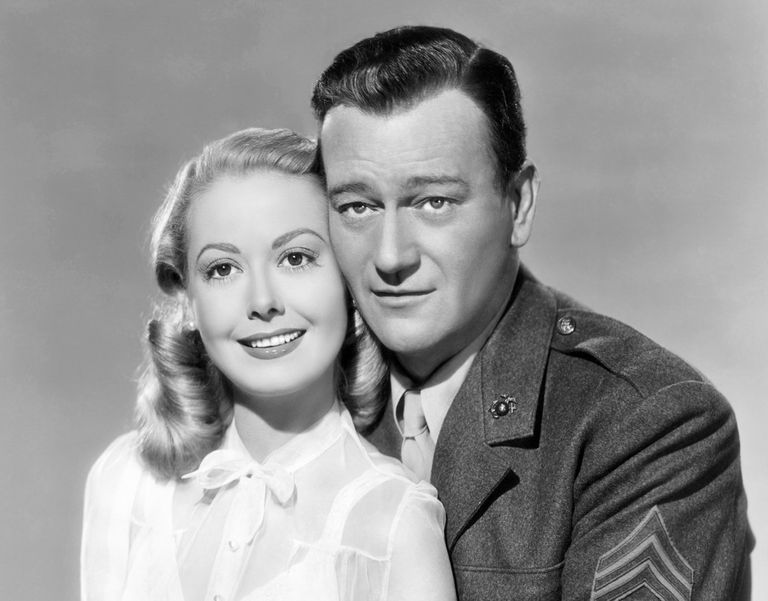
Reluctance To Sign Up
His Future Comments
Despite everything, John Wayne made comments that you can describe as hypocritical. For example, he once said that men who did not enlist to fight in Vietnam were “soft.” At that point in time, the actor had been too old to enlist. He did his part by pushing other people to serve with the use of films.
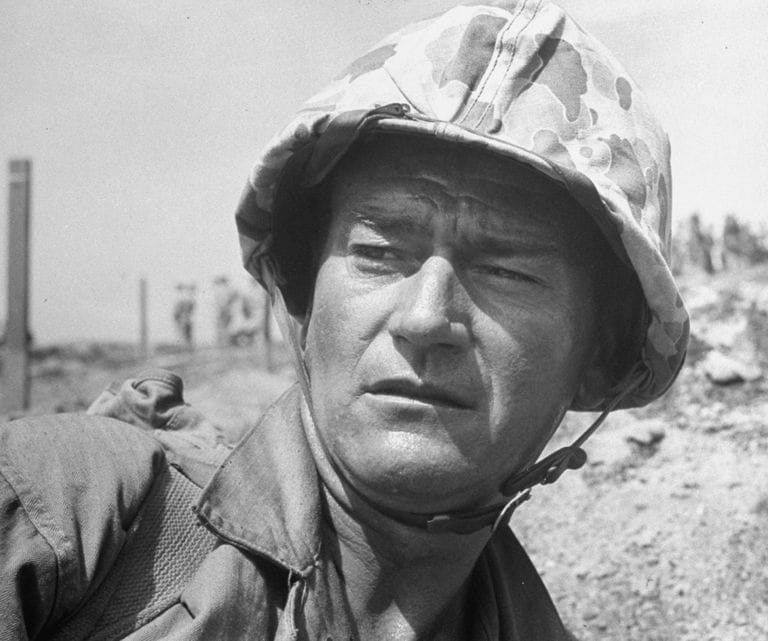
His Future Comments
Making Propaganda Pieces
In 1968, John Wayne made and starred in The Green Berets. A lot of people said that this is propaganda, which is not wrong at all. As a matter of fact, the Department of Defense had control over its script. On top of that, Wayne got approval to make the film from President Lyndon B. Johnson.
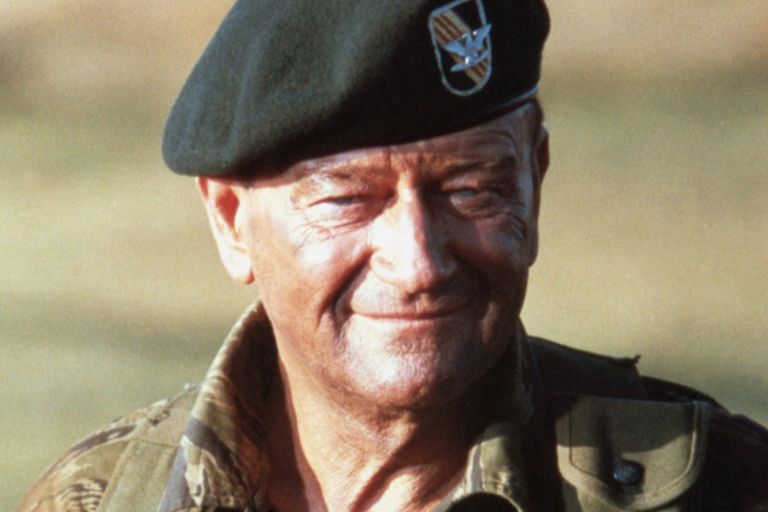
Making Propaganda Pieces
During The Vietnam War
You might have already guessed that this movie supports the involvement of the United States in the Vietnam war. One of the characters even says, “What’s going on here is communist domination of the world!” The plot follows Colonel Mike Kirby to convince everybody that this is a necessary and important war. Before the credits roll down the screen, he manages to sway a left-wing journalist.
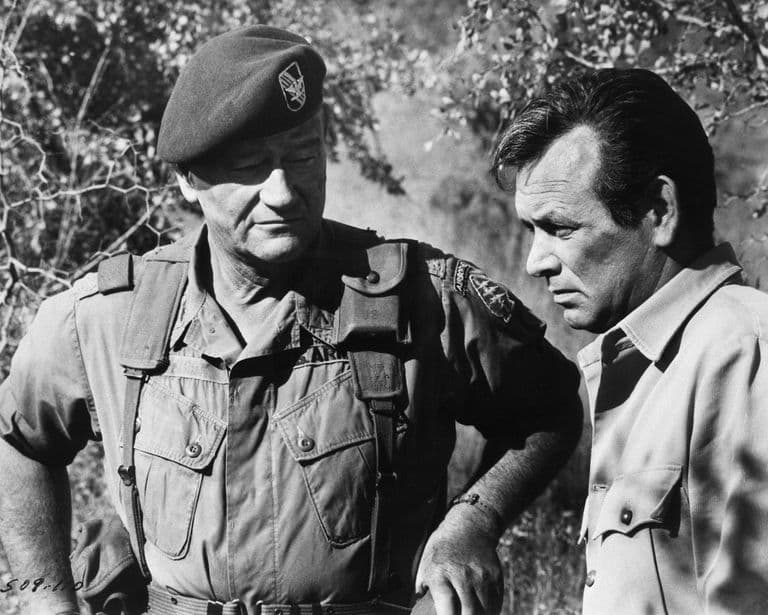
During The Vietnam War
It Was A Critical Flop
The film was not liked by critics. In the New York Times, Renata Adler said that it “becomes an invitation to grieve – not for our soldiers or for Vietnam (the film could not be more false or do a greater disservice to either of them) but for what has happened to the fantasy-making apparatus in this country.”
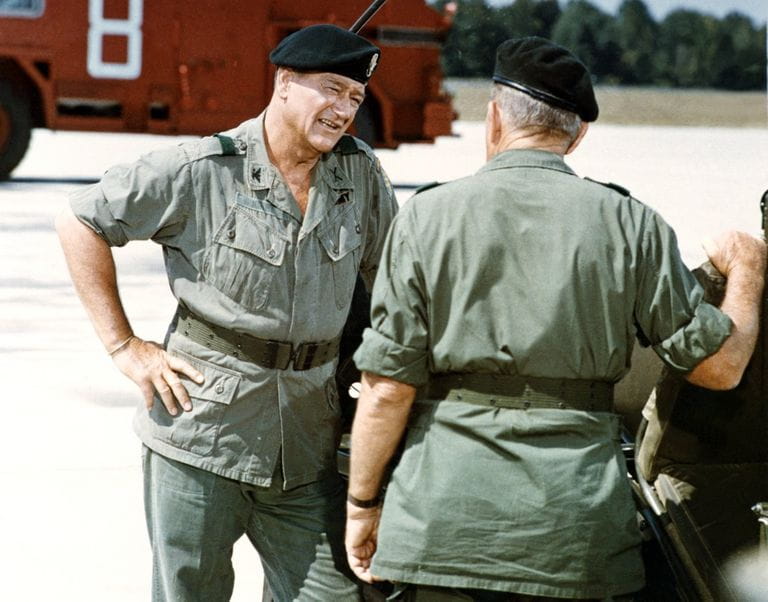
It Was A Critical Flop
Not The Only One
Mind you, the film was not the only propaganda work that he did during the conflict. In 1970, John Wayne worked as the host of the No Substitute for Victory documentary. As the narrator, he criticizes the people who oppose the US involvement in Vietnam War. He quotes Abraham Lincoln in the opening: “To sin by silence when you should speak out makes cowards of men.”
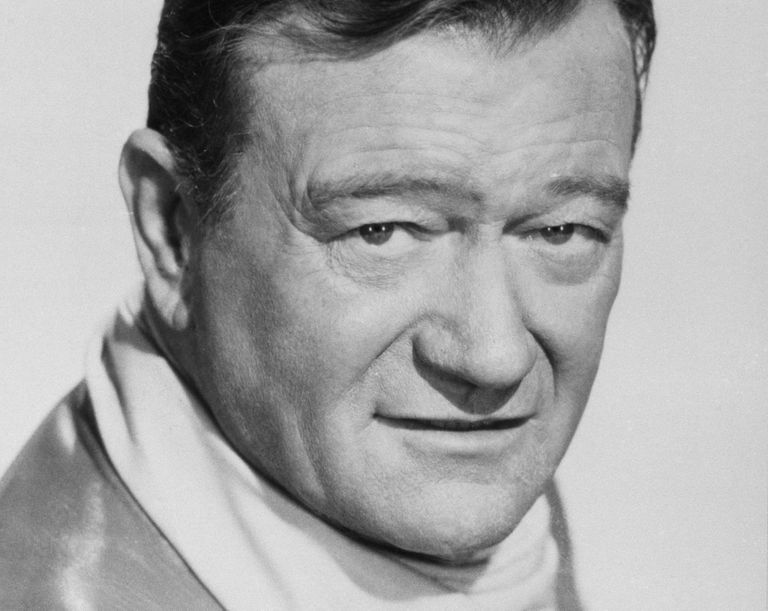
Not The Only One
He Was Vocal About His Views
In the project, John Wayne did not hide his feelings about the war. He said, “The street demonstrators demand that we get out of Southeast Asia so that there will be peace. Where do they get the idea that there’ll be peace just because we quit?” Aside from that, he seemingly blames the losses of the United States on “the politicians and civilians that we’ve let stick their nose in it.”
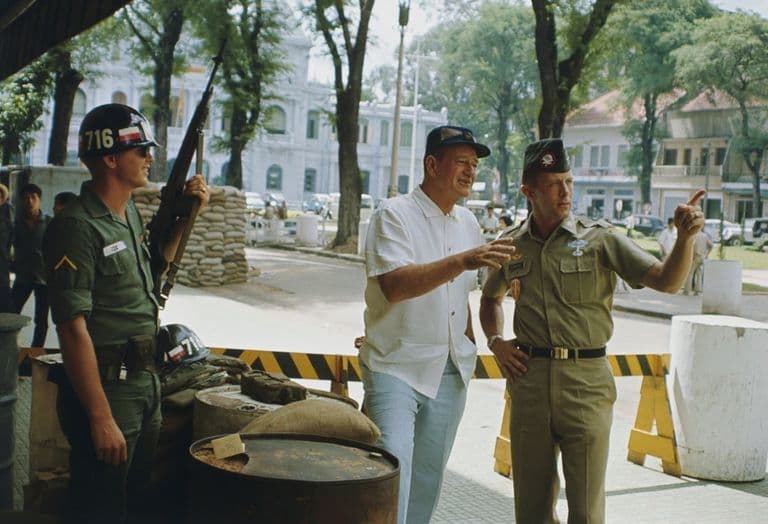
He Was Vocal About His Views
The Reason For His Enthusiasm
There are people who think that he was so gung-ho about it as a way to atone for his shame about not helping with the war efforts several decades before that. Pilar Pallete, his third wife, agreed with this. “He would become a ‘superpatriot’ for the rest of his life, trying to atone for staying home,” she wrote.
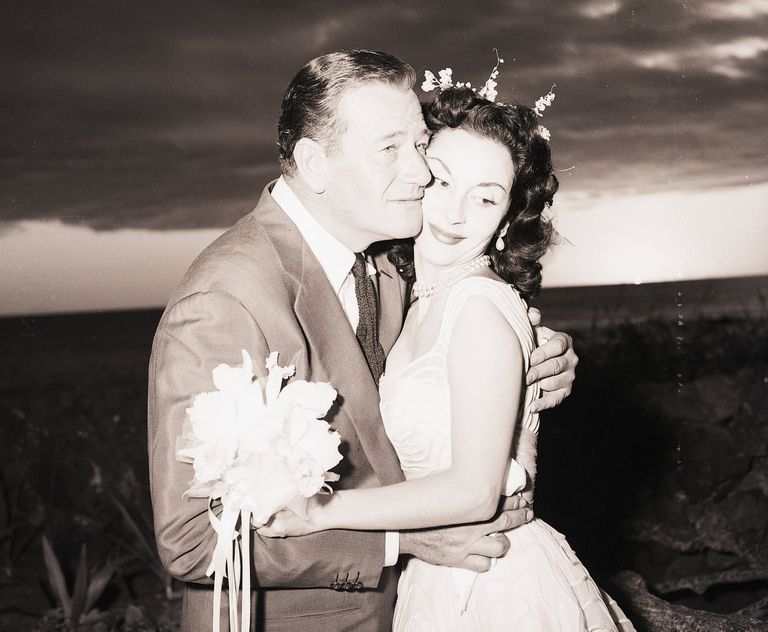
The Reason For His Enthusiasm
Why He Did Not Sign Up
There are a number of different theories regarding the reason John Wayne did not serve in the Second World War. In reality, this is a complex story. When the United States joined the war after the bombing of Pearl Harbor, he got excused from military service. At the time, he had four kids at the age of 34.
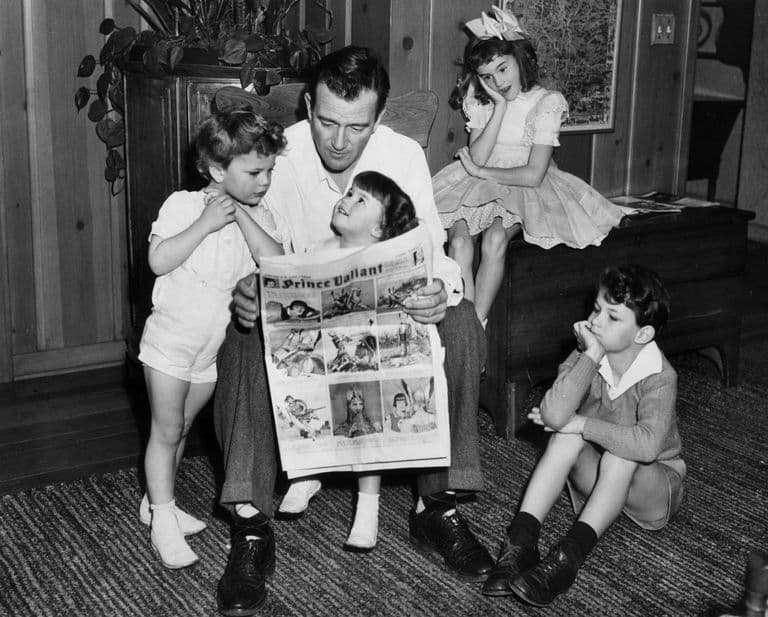
Why He Did Not Sign Up
His Situation At The Time
Due to his situation, he was had 3-A status at the time. It was family deferment for him. But he might have really wanted to serve in the military. In 1942, he wrote Ford to ask, “Have you any suggestions on how I should get in? Can you get me assigned to your outfit, and if you could, would you want me?”
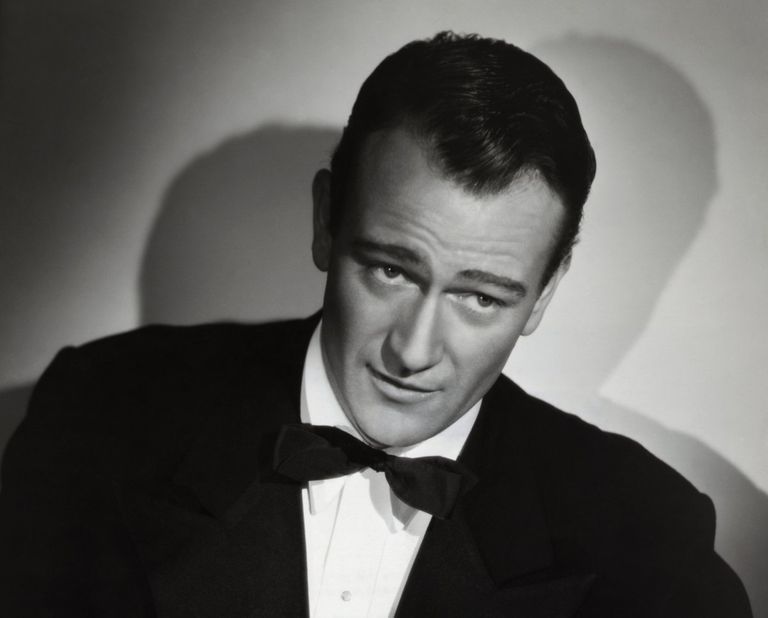
His Situation At The Time
He Was Accepted By A Unit
There is no evidence that Ford answered his letter. It is true that John Wayne applied for the Office of Strategic Services and got accepted under the Field Photographic Unit. Sadly, the issue is that his letter of approval was sent to the house of his estranged wife Josephine Saenz, who did not give it to him.
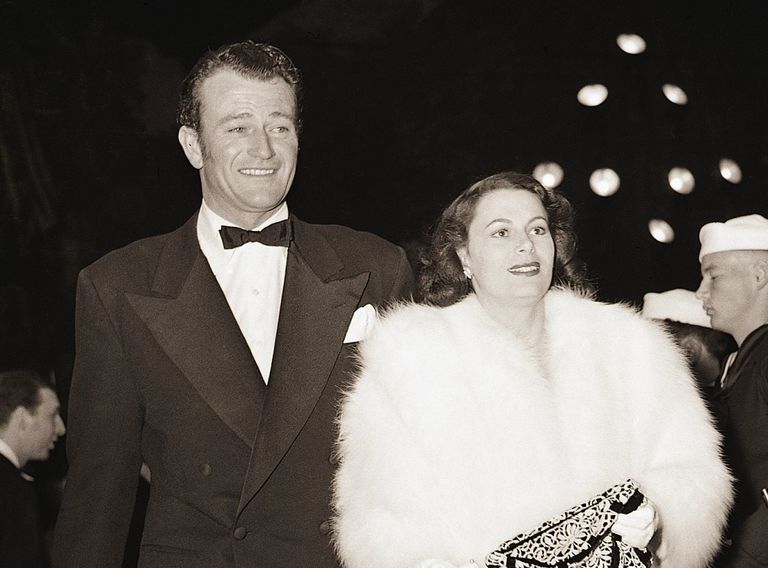
He Was Accepted By A Unit
The Letter Did Not Reach Him
In 2016, a website called Den of Geek wondered why she would hide the O.S.S. acceptance letter from him. “[Saenz] certainly would have had good reason to withhold the letter,” the writer speculated in the article. He added, “If [Wayne] died in the war, she alone would be left to provide for their four children.”
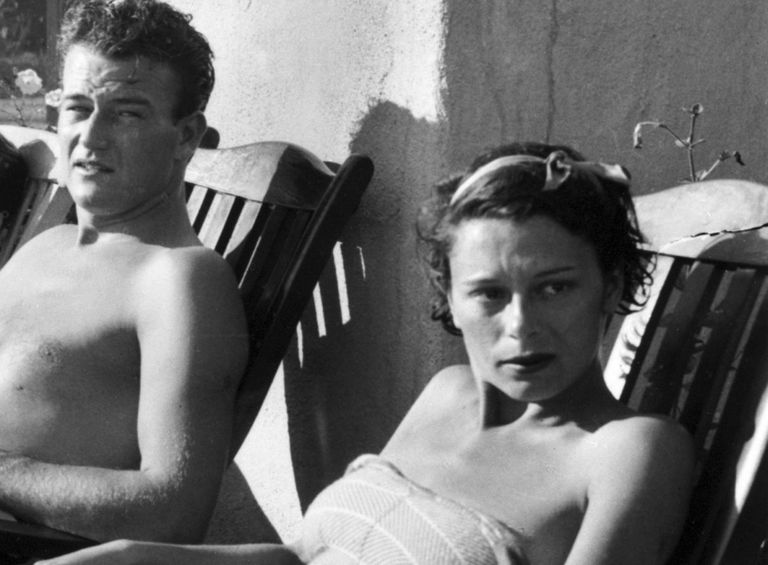
The Letter Did Not Reach Him
They Wanted Him Out Of It
It is also worth noting that the studio he joined and stayed in for the duration of the conflict wanted to keep the star out of the war. When John Wayne was reclassified as eligible for the draft, Republic Pictures stepped in. Herbert J. Yates, the president of the studio, told him that he would be sued if he breached his contract to join the war effort.
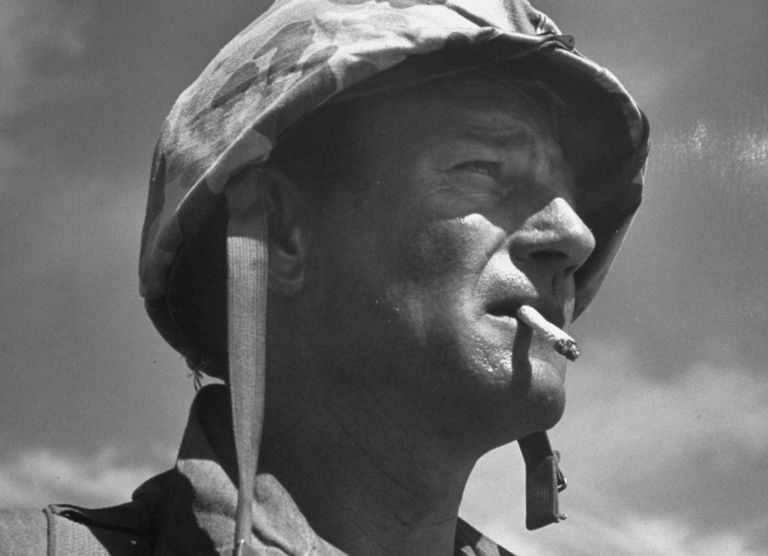
They Wanted Him Out Of It
In The Name Of National Interest
Republic Pictures even took measures to keep him out of the war. As a matter of fact, the company allegedly requested that he be excluded from the draft “in support of national interest.” Despite all this, his critics were of the belief that the actor himself supported the idea of not participating in the war effort.
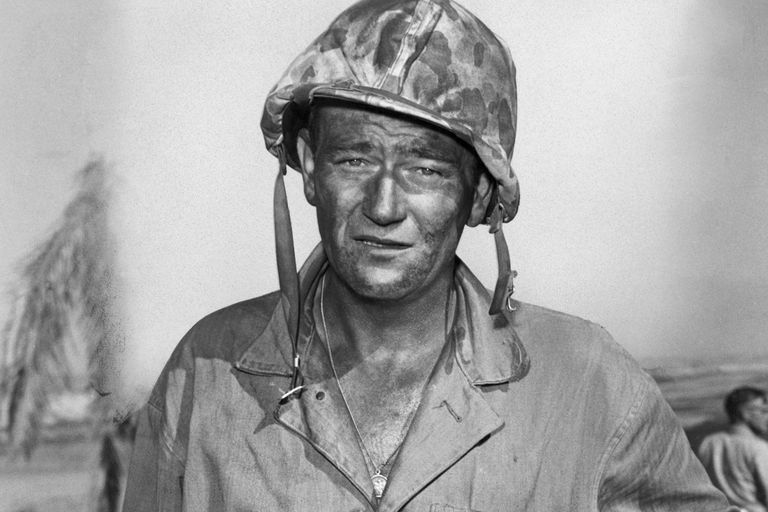
In The Name Of National Interest
Despite The Lack Of Proof
And while there’s apparently no evidence that Wayne actually did anything to prevent himself from being sent to war, it does seem like he didn’t try particularly hard to join up, either. For a start, a Hollywood studio had never actually followed through on threats of a lawsuit when one of their clients had left to be part of the war effort – meaning Wayne may not have really had much to fear there.
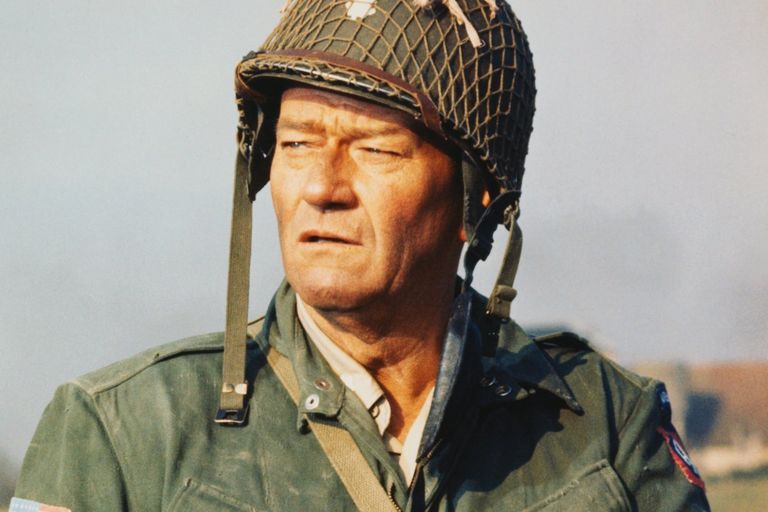
Despite The Lack Of Proof
He Had Old Football Injuries
It is also possible that Wayne would not have been eligible to fight because of his old injuries from playing football. Despite this, the typical charge put up against him is that he did try all that hard to enlist. Fair enough, he could have just signed up at a recruiting station. But the fact is that he did not.
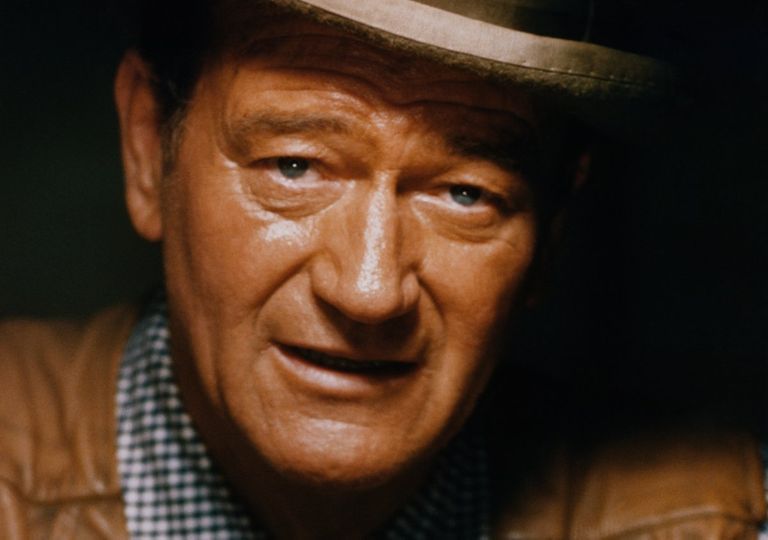
He Had Old Football Injuries
It Was Below Him
On top of that, there is a suggestion that John Wayne felt like the position of private was not up to his standard. It is said that he told Dan, Ford’s grandson, “I felt it would be a waste of time to spend two years picking up cigarette butts. I thought I could do more for the war effort by staying in Hollywood.”
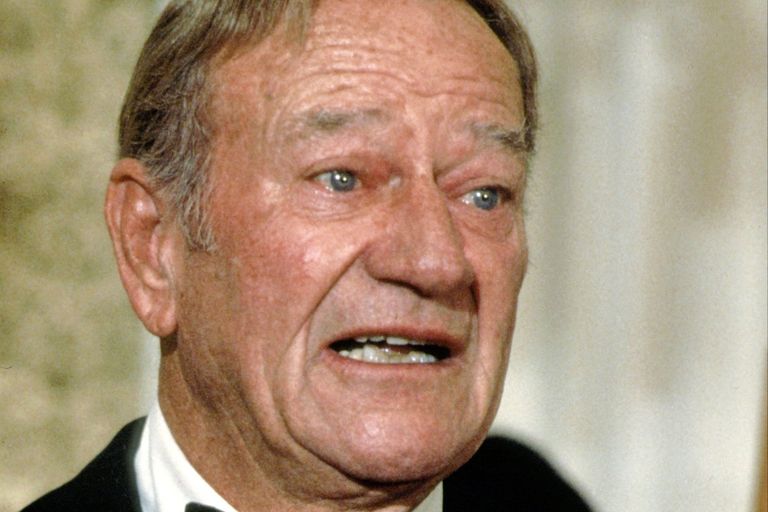
It Was Below Him
He Did Not Have A Typewriter
Nearly twenty years after the death of the actor, the BBC released the documentary The Unquiet American. The project suggested that John Wayne said that he did not have a typewriter to fill out the application forms as one of the reasons he did not sign up for military service during the war.
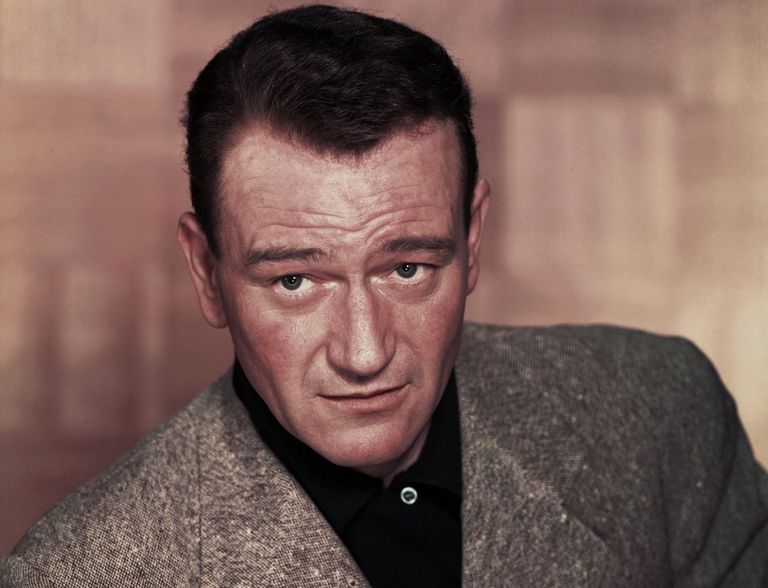
He Did Not Have A Typewriter
All About His Career
James Kent, the producer of the documentary, told The Independent more about the reason the actor avoided military service. “It was a purely careerist move. [Wayne] manipulated it so he didn’t have to sign up and could fill the vacuum left by the other Hollywood stars who did,” he said. He added, “Later he found himself a flag-waver and arch Commie-baiter with no military record.”
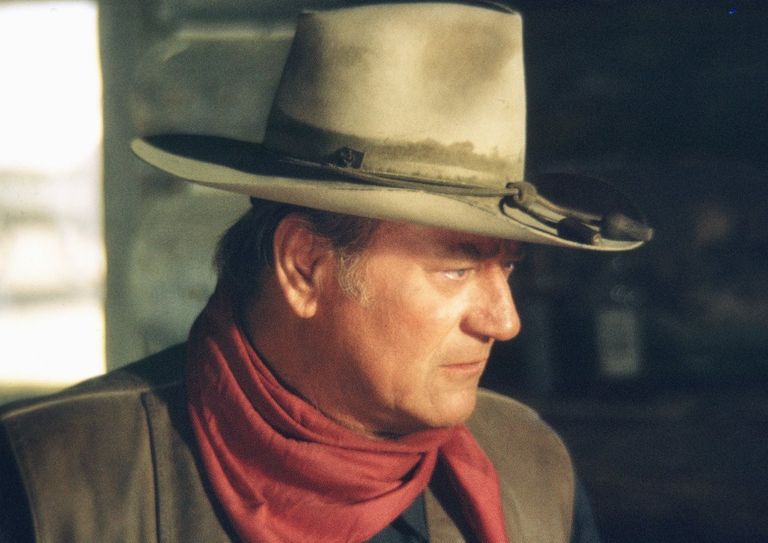
All About His Career
He Has Been Criticized A Lot
His status as an American patriot has been tarnished in recent years. There is more to it than his lack of experience in the military. In 1971, the actor sat down for an interview with Playboy that has earned notoriety after his death. “I believe in white supremacy until the blacks are educated to a point of responsibility,” the article quoted John Wayne as saying.
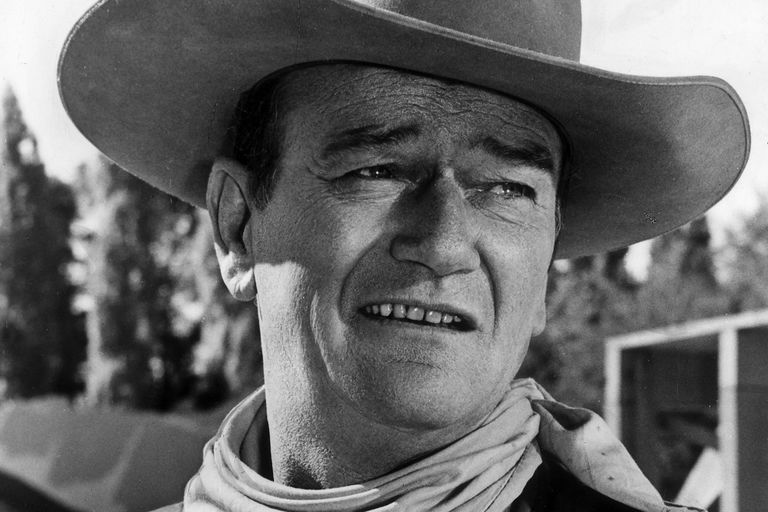
He Has Been Criticized A Lot
His Racist Remarks
This was not the end of his racism. “We can’t all of a sudden get down on our knees and turn everything over to the leadership of the blacks,” John Wayne went on. On the topic of slavery, the actor said, “I’m not condoning slavery. It’s just a fact of life, like the kid who gets infantile paralysis and has to wear braces so he can’t play football with the rest of us.”
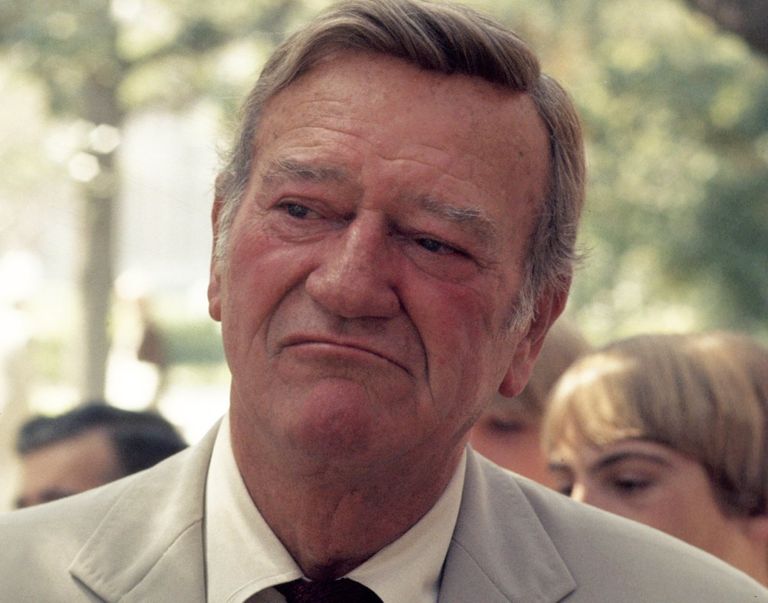
His Racist Remarks
He Cast Them In His Films But…
While John Wayne said that he always tried to incorporate racial equality in his projects, he has said a lot of insensitive things as well. “I’ve directed two pictures, and I gave the blacks their proper position,” the actor explained. “I had a black slave in The Alamo, and I had a correct number of blacks in The Green Berets. If it’s supposed to be a black character, naturally I use a black actor.”
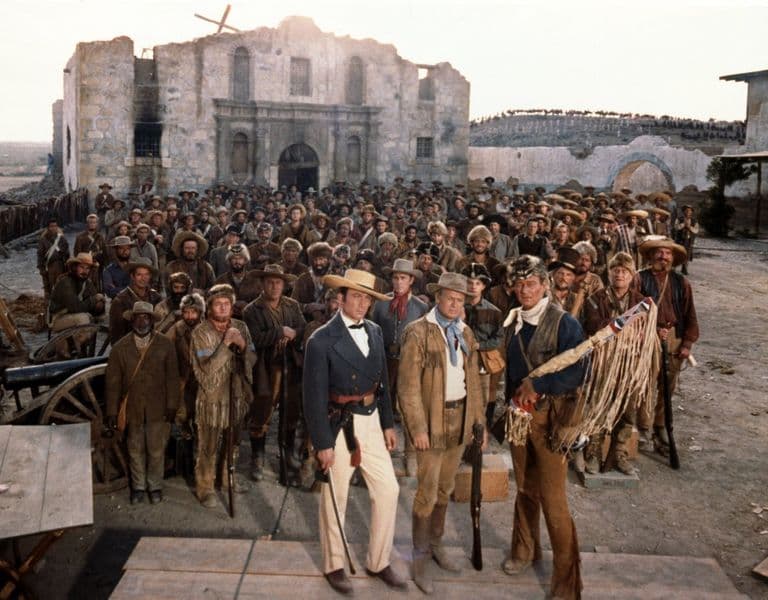
He Cast Them In His Films But…
About The Native Americans
John Wayne also expressed his disdain for the Native Americans. “I don’t feel we did wrong in taking this great country away from them,” the actor explained in the interview. He continued, “Our so-called stealing of this country from them was just a matter of survival. There were great numbers of people who needed new land, and the Indians were selfishly trying to keep it for themselves.”
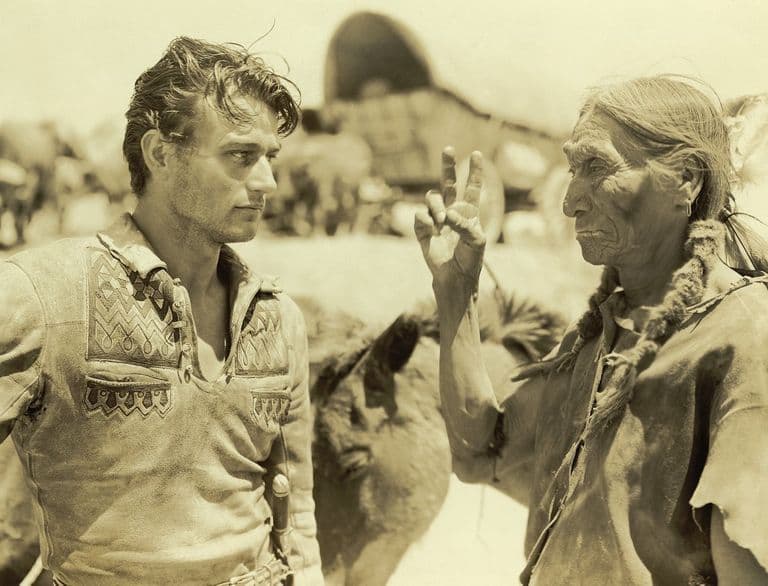
About The Native Americans
His Homophobic Sentiments
To cap it off, there is also the matter of his homophobia. When he spoke to Playboy, he said that these “perverted” films should not have been allowed to circulate across the United States. To explain what he meant, he offered examples of these movies: “Easy Rider, Midnight Cowboy – that kind of thing.”
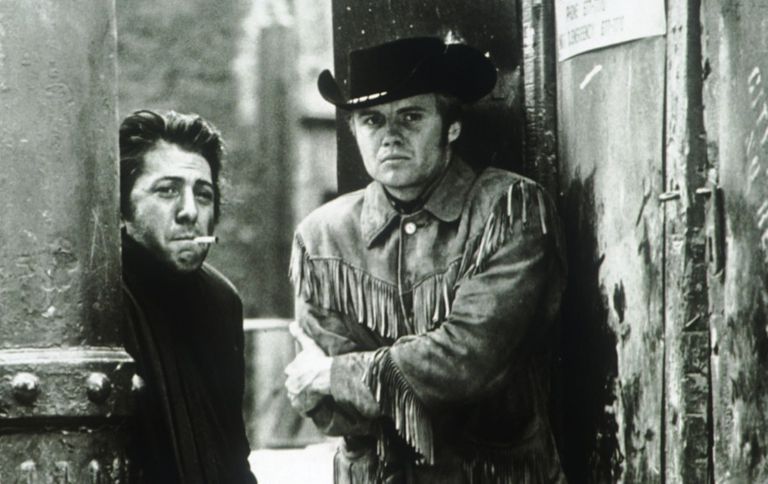
His Homophobic Sentiments
When It Came To Vietnam
Let us see what he said about the Vietnam war. The interviewer informed John Wayne that there were many men there who “never wanted to go to Vietnam in the first place.” He replied, “Well, I sure don’t know why we send them over to fight and then stop the bombing so they can get shot that much more.”
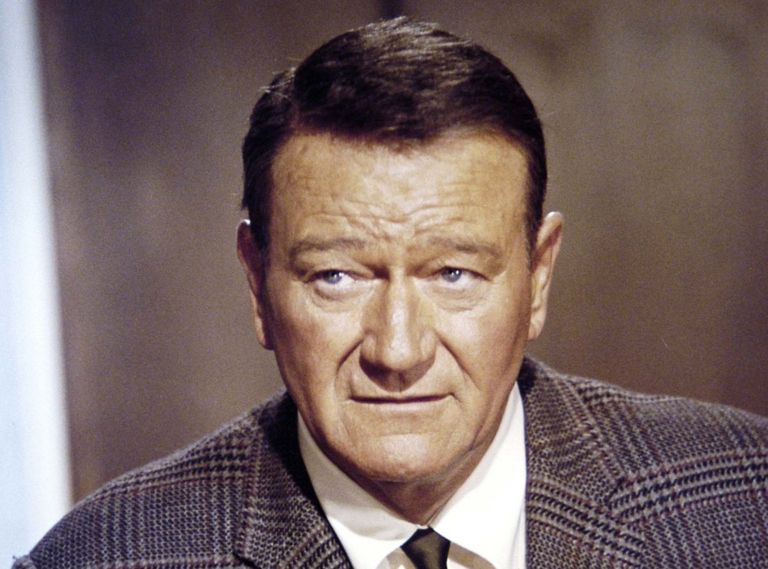
When It Came To Vietnam
He Did Not Impress The Interviewer
“I figure if we’re going to send even one man to die, we ought to be in an all-out conflict. If you fight, you fight to win,” he shared. The interviewer did not seem impressed with what John Wayne had to say. Despite this, he did not point out that the actor himself had never been involved in anything like that.
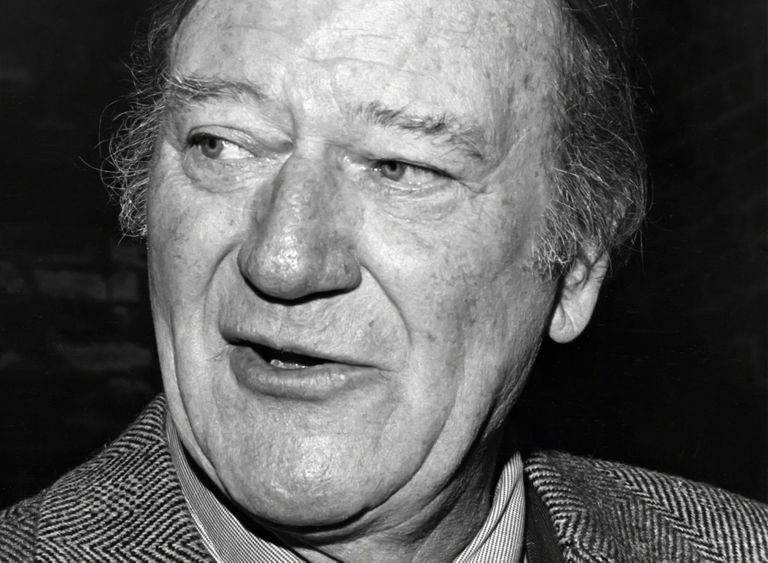
He Did Not Impress The Interviewer
Netizens Were Not Pleased
In 2019, the Playboy interview made rounds on the internet after someone posted about it on Twitter. John Wayne received a lot of criticism for his opinions. On the other hand, there were folks who called him epithets like “draft dodger” to further express how they felt about the views that he held.
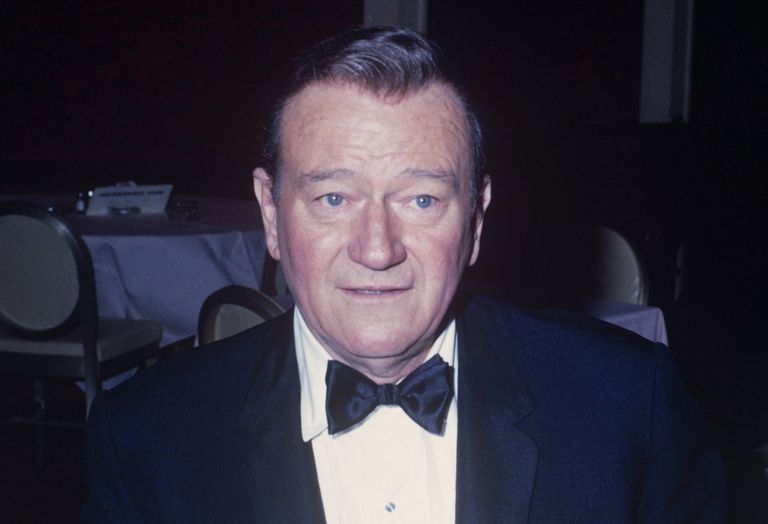
Netizens Were Not Pleased
A Deceitful And Pitiful Man
One of the people most vocal about this had been Glenn Greenwald. The writer called John Wayne “one of the 20th century’s most deceitful and pitiful men.” His verdict was that the actor was “[a] war cheerleader and moralizer who casually impugned patriotism and called people perverts while draft-dodging and having serial drunken affairs.” How brutal is that?
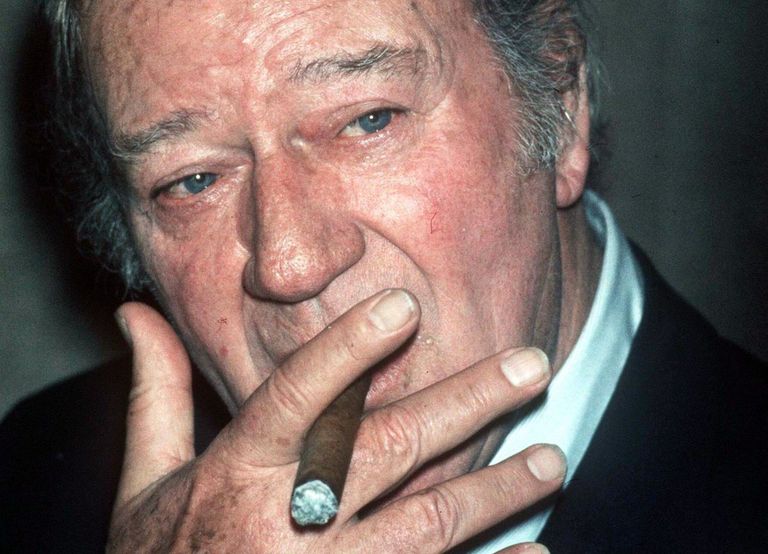
A Deceitful And Pitiful Man
The Legacy He Wanted To Leave
Before the Playboy interview came to an end, the interviewer asked John Wayne what kind of legacy he would want to leave. “I hope my family and my friends will be able to say that I was an honest, kind and fairly decent man,” the actor answered. There are relatives who have expressed their support of him, but we can’t deny that his American icon status has been questioned a lot lately.
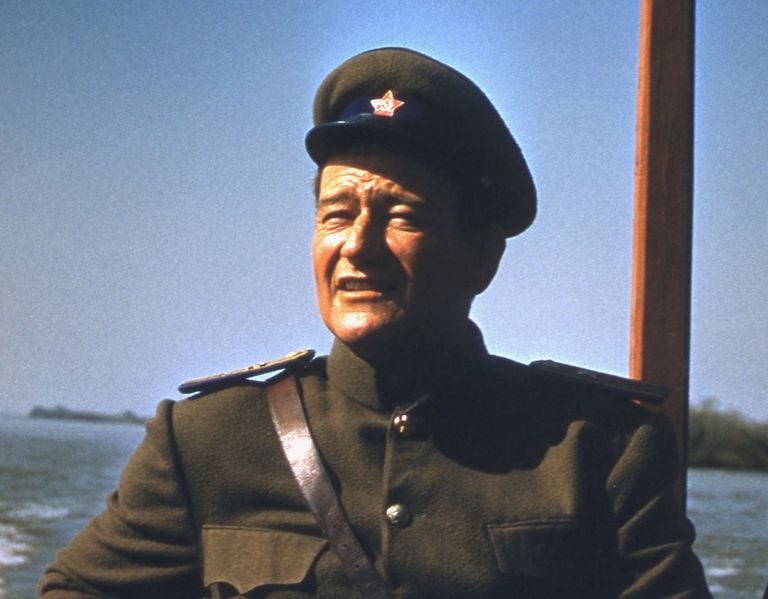
The Legacy He Wanted To Leave
A Hollywood Actor Who Served
While John Wayne did not fight for his country, there is a tough guy in Hollywood who did. As a matter of fact, they have been compared often. They are both dubbed as the most legendary action heroes that the industry has ever seen. This guy was not just a hero in front of the camera but in real life as well!
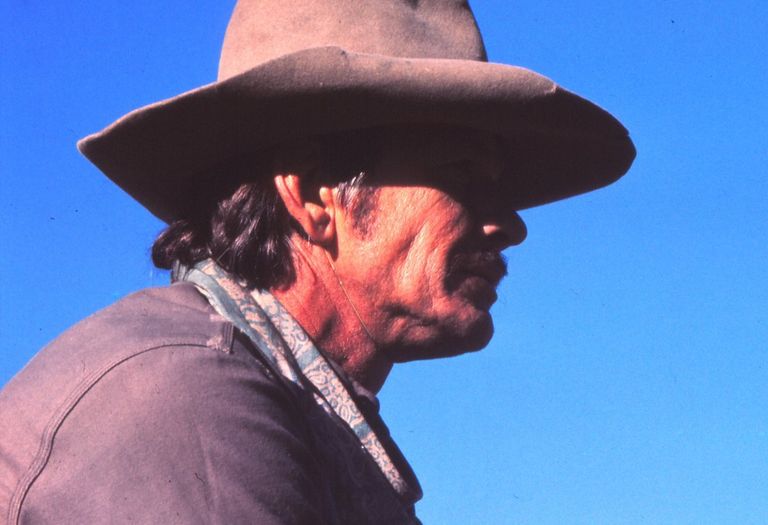
A Hollywood Actor Who Served
What Charles Bronson Was Really Like
Best known for starring in The Dirty Dozen, Death Wish, and The Great escape, Charles Bronson became known as a macho guy. But the truth is that he was a private and thoughtful guy. He was also a family man and a painter. While he did not have a lot of similarities with the characters he brought to life, you could say that his life would make for a great action drama as well. He did not only have to survive a traumatic youth, but he fought in the Second World War as well.
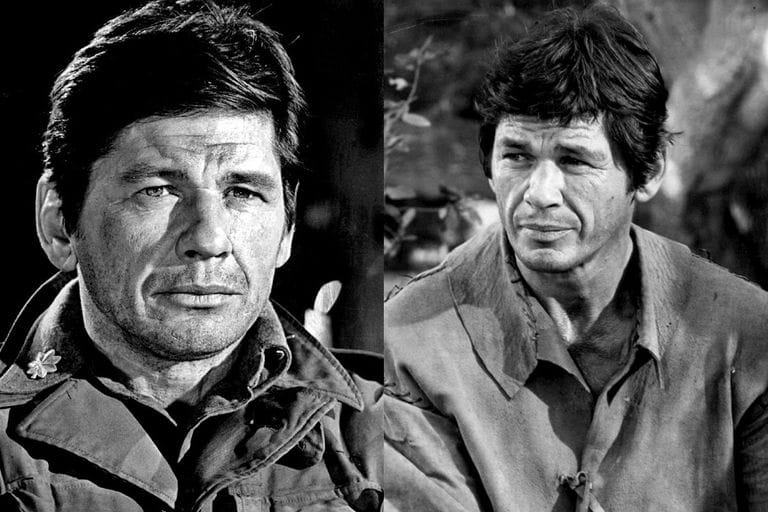
What Charles Bronson Was Really Like
His Tough Guy Persona
The actor earned his tough guy persona thanks to his work on the big screen. He was often cast to play vigilantes out for revenge. We have to say that no one could show cold anger as well as he did. In fact, a few of his movies saw controversy for their violence. This is especially true of Death Wish.
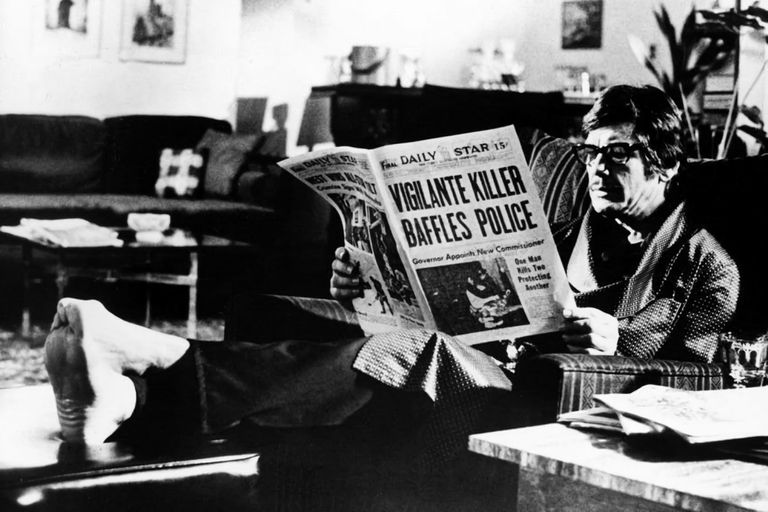
His Tough Guy Persona
Death Wish Was Panned
You could say that Death Wish elicited a lot of furor. Vincent Canby of The New York Times even denounced the movie in two different articles and said that it is “a despicable movie – one that raises complex questions in order to offer bigoted, frivolous, oversimplified answers.” Brian Garfield, the person who wrote the book that it was based on, talked negatively about the film adaptation as well.
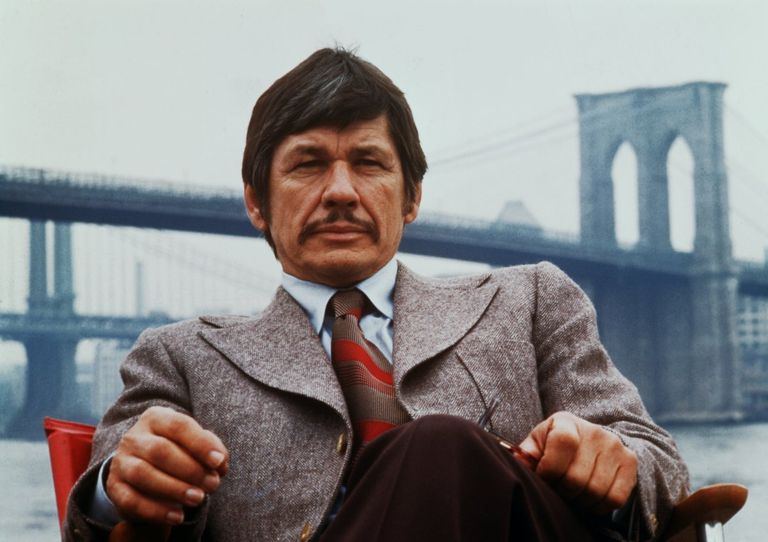
Death Wish Was Panned
He Played It Up For The Cameras
While he was a mild and quiet guy, Bronson began to play up his tough guy persona in interviews to pander to the viewers. He once told the press that he had been in real fights and liked knife-throwing. Aside from that, he also said that he had been arrested in the past. However, journalists did not find anything to back up that claim of his when they looked for evidence of it.
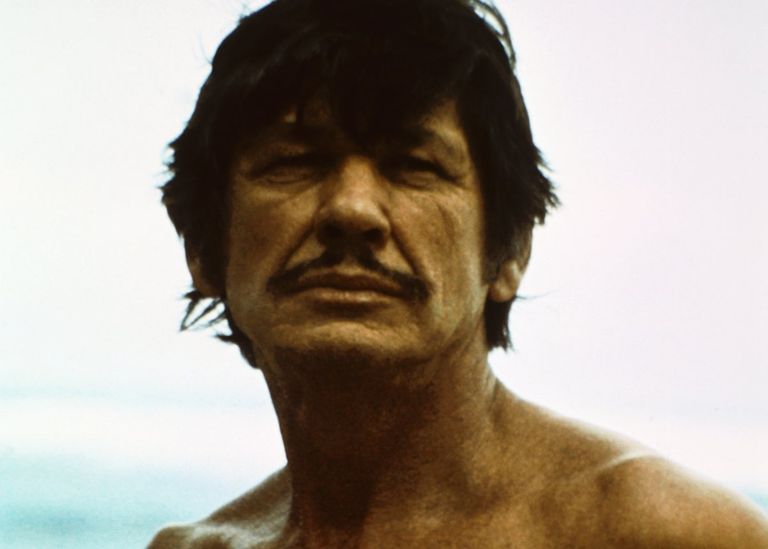
He Played It Up For The Cameras
Not What He Looked Like
There was at least a hint that he was not the angry guy that he played in movies so often. In 1974, Roger Ebert interviewed the actor and recalled something that director Michael Winner said about the actor. It is said that the filmmaker shared, “After we’ve been on a picture a few weeks, the crew starts asking, ‘When does it happen? When does [Bronson] blow up?’ Actually, I’ve never seen him blow up. But he seems to contain such a capacity for it that people tend to brace for it.”
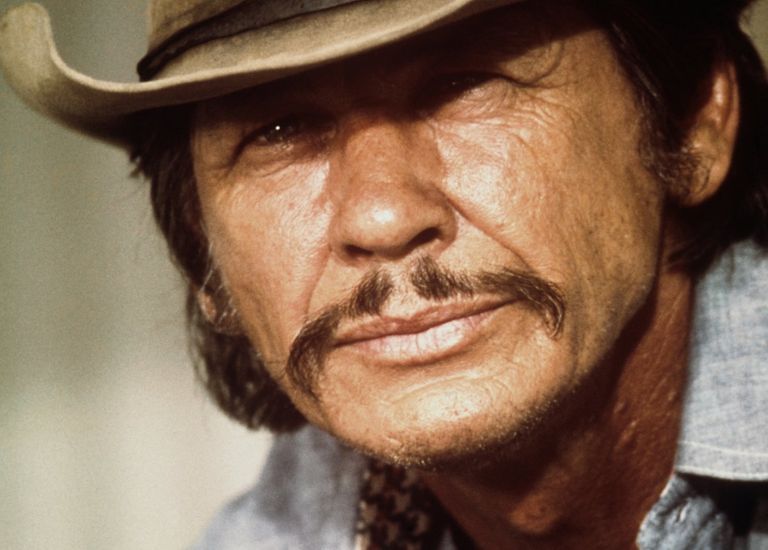
Not What He Looked Like
What His Childhood Was Like
Maybe his brooding manner in front of the cameras had its roots in his early years. In 1921, Charles Bronson was born as the eleventh kid of fifteen to a Lithuanian couple. The original family last name was Bučinskis. At the time of his birth, they had already changed it to “Buchinsky” to sound more American.
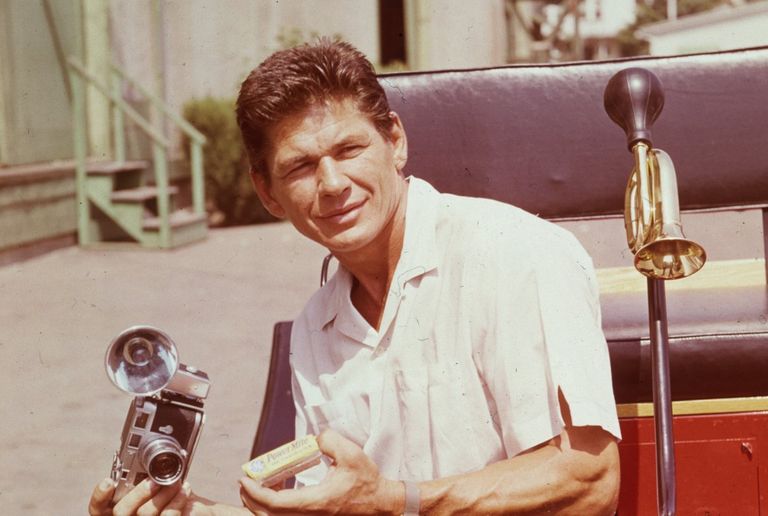
What His Childhood Was Like
Growing Up In A Time Of Political Turmoil
Mind you, Charles Bronson came up with his screen name when there was a lot of political turmoil. In the ‘50s, actors were blacklisted if they showed even the slightest Communist leanings. The actor had been worried that his last name would work against him. According to the story, he picked his new alias after seeing a street sign that his costar and friend Steve McQueen showed him.
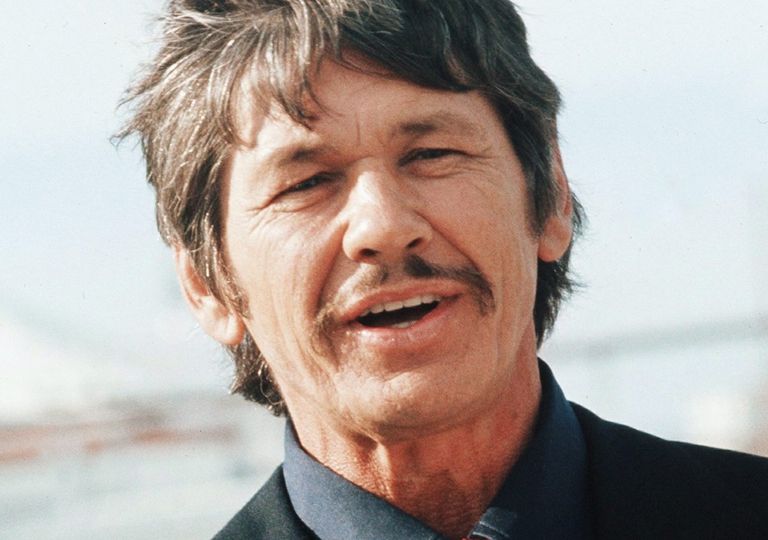
Growing Up In A Time Of Political Turmoil
Going Back To His Roots
In 1986, Charles Bronson harked back to his origins in Act of Vengeance. No matter what the title might suggest, he was not a violent vigilante in it. He played a coal miner union representative who fights a corrupt chief instead. The story was based on the real story of a man called Jock Yablonski.
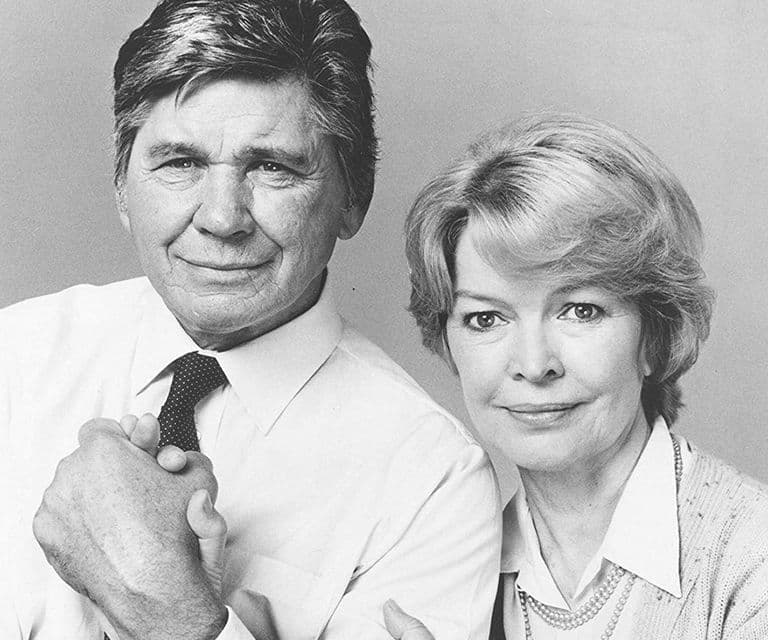
Going Back To His Roots
He Used To Be A Coal Miner
The sad truth is that Jock Yablonski got murdered as he tried to improve the working conditions of the coal miners. There is a chance that the actor considered the plot personal. After all, Charles Bronson and the other members of the family went through a lot of hardship when they worked as miners.
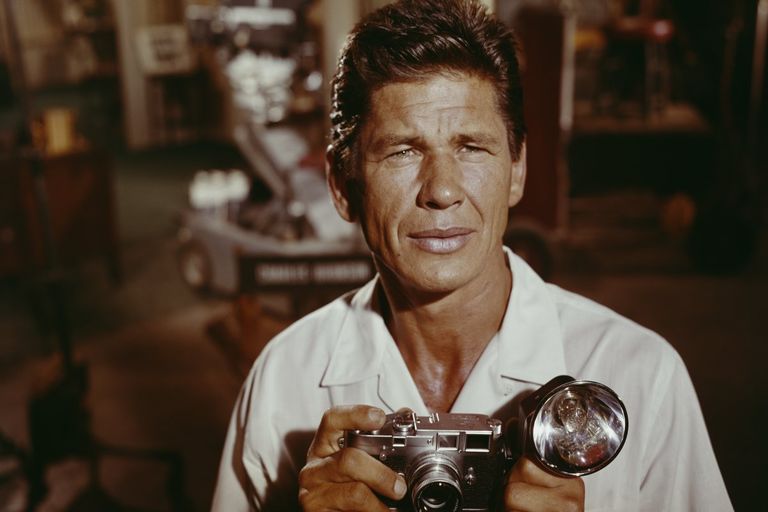
He Used To Be A Coal Miner
A Poor Mining Family
The Buchinskys were very poor and worked at the Ehrenfeld coal mine. The clan initially lived in a property of the Coal and Coke Company, but they got kicked out of there when the miners went on a strike and stopped working. They did not have anywhere to go but the house of a fellow miner. At the time, there were already at least nine people living in the same place.
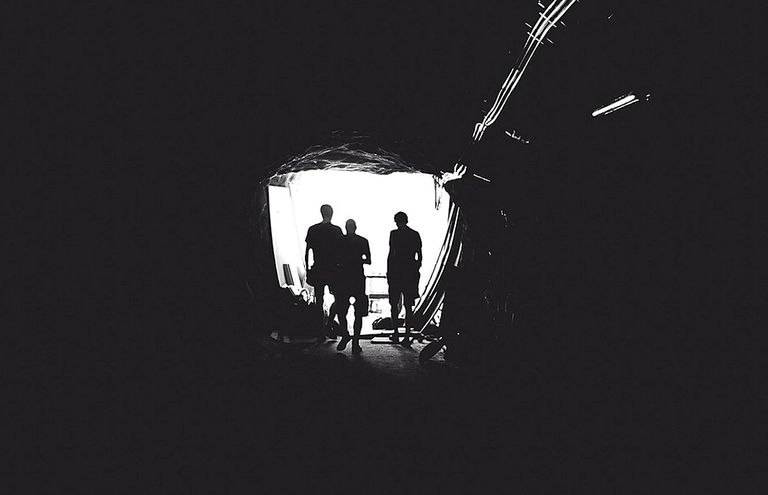
A Poor Mining Family
It Was A Terrible Experience
“I remember my father had shaved us all bald to avoid lice. Times were poor,” he shared with Ebert in 1974. “I wore hand-me-downs. And because the kids older than me in the family were girls, sometimes I had to wear my sisters’ hand-me-downs. I remember going to school in a dress. And my socks… when I got home, sometimes I’d have to take them off and give them to my brother to wear into the mines.”
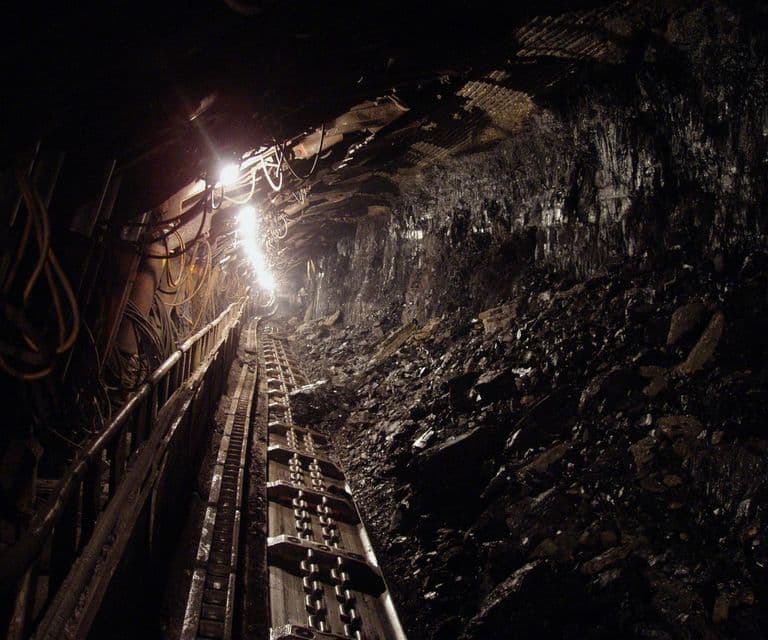
It Was A Terrible Experience
The Death Of His Father
Things did not get better for the family as time passed. At the age of ten, the patriarch of the family died. Mining took a toll on the older man’s body and gave him black lung disease. Charles Bronson said that he heard his father coughing and wheezing for quite some time before he ultimately passed away.
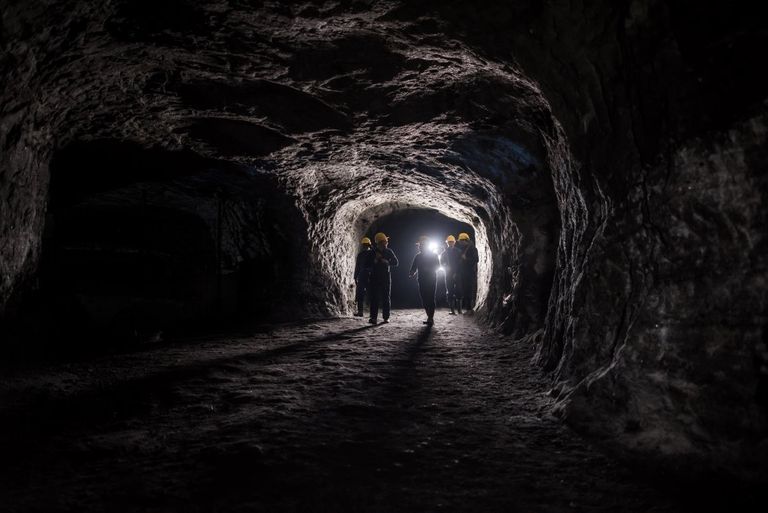
The Death Of His Father
Black Lung Disease
Black lung disease was not understood ‘til the ‘50s rolled in. Sadly, this was too late for his father. In 1969, the United States Congress finally passed the Federal Coal Mine Health and Safety Act. It ensured adequate compensation and better working conditions for the people who worked in the coal mines.

Black Lung Disease
When He Was A Young Boy
While he knew what his father went through, Charles Bronson himself worked in the same coal mines. At the time, he did not even know how to speak English. This is already dangerous for an adult, so it was much riskier for a teen. On top of that, the young man had already picked up the smoking habit by then.
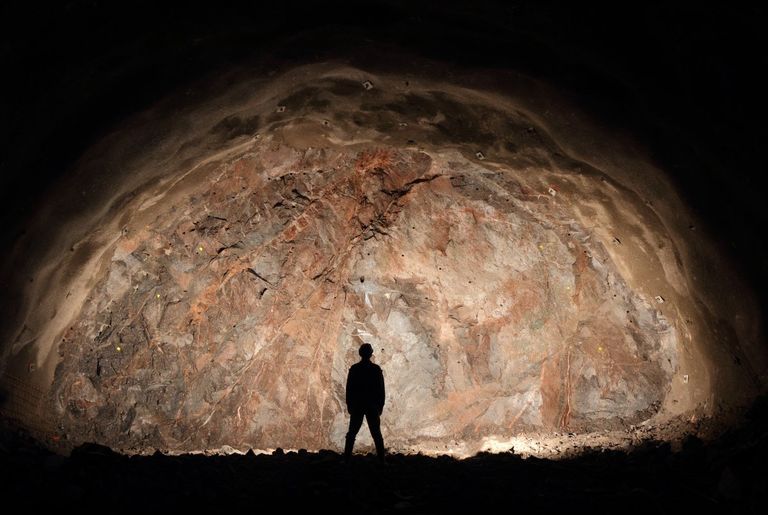
When He Was A Young Boy
What His Hometown Was Like
Charles Bronson gave Roger Ebert a vivid picture of what his childhood had been like. He shared, “I remember the old company towns. There was no neon except for the company store. Nothing was green. The water was full of sulfur. There was nothing to put a hose to. There were unpaved streets covered with rock and slag.”
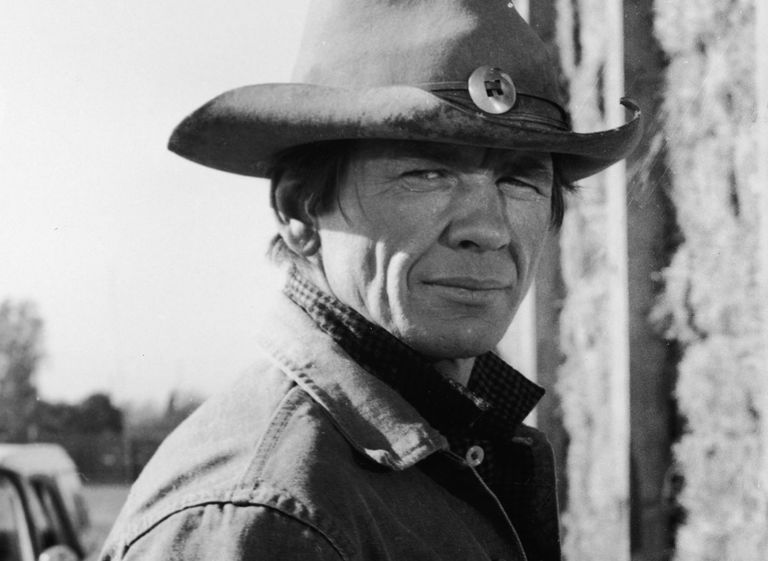
What His Hometown Was Like
How To Describe The Town
It was very dangerous to live in a coal-mining town. Charles Bronson told Roger Ebert, “You had the rock dumps always exploding. They were always on fire down inside. [And] if it rained for a long enough time, the water would seep down to the fires, turn to steam and the dump would explode.” What makes everything even worse is that mining did not pay well at all.

How To Describe The Town
The Work Was Hard
“It was piecework. You didn’t get paid by the hour, you got paid by the ton. You felt you were the hardest-working people in the world,” Bronson told Ebert. “When I worked, the rate was a dollar a ton. You spent one whole day preparing so you could spend the next day getting it out. The miners felt bound together. They knew how much they could get out, how much they could do. And they worked.”
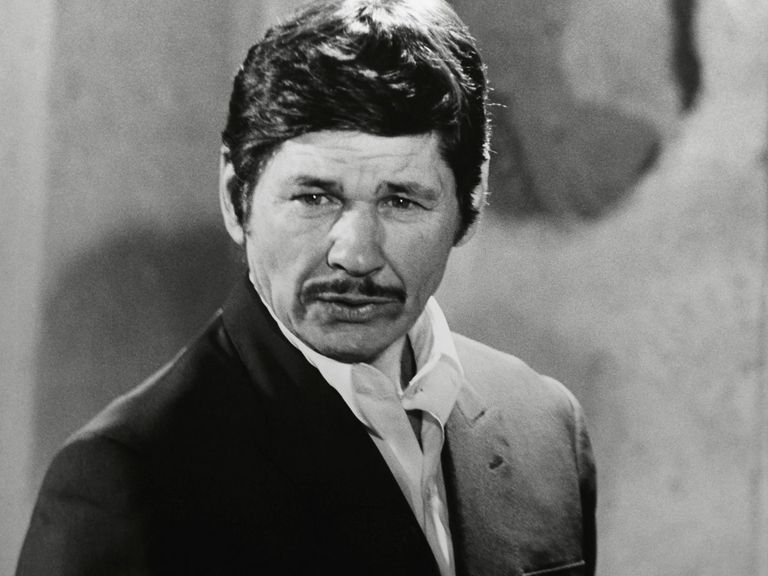
The Work Was Hard
About The People Behind The Scenes
He had always been distrustful of the people who worked behind the scenes in these mines. “People are aware of how hard coal mining is,” the actor shared with The Washington Post in 1986 as he promoted Act of Vengeance. “But they don’t know the manipulation that goes on behind closed doors [and] the ways in which the health, safety and welfare of the miner and his family are affected,” he said.

About The People Behind The Scenes
The People In His Hometown
Word of his distrust of the people who ran the scene made its way to his hometown of Ehrenfeld, Pennsylvania. A lot of locals had mixed feelings about Charles Bronson after his death. “Someone asked for permission to have a sign put up at the entrance of [the] town about a year ago, and [the] borough council voted against it,” council president Albert Keller informed the Associated Press in 2003. He added, “They said [that] Charlie didn’t do a damn thing for this town.”
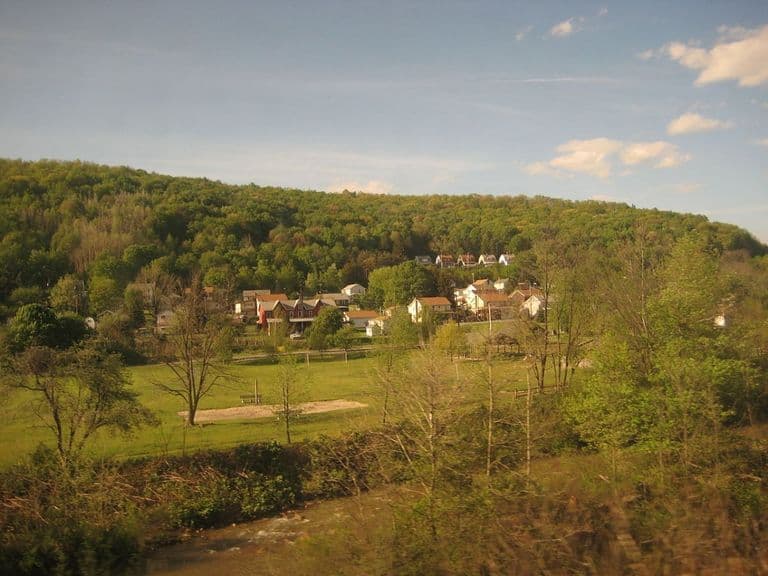
The People In His Hometown
Nothing But A Tall Tale
However, Charles Bronson claimed that he did his part when he lived there. “I volunteered every day for taking out the stumps – that pillar of coal standing between the two tunnels already dug out. There was never more than 3 and a half feet to stand, [and] cave-ins were common,” the star shared with the New York Daily News in 1972. People have disputed this claim, however. It looks like it was not the only part of his life that turned out to be a tall tale. There was a point when the media ran a story that his mom sold him in his childhood. The truth was that she had simply sent him to stay at a farm for the summer.
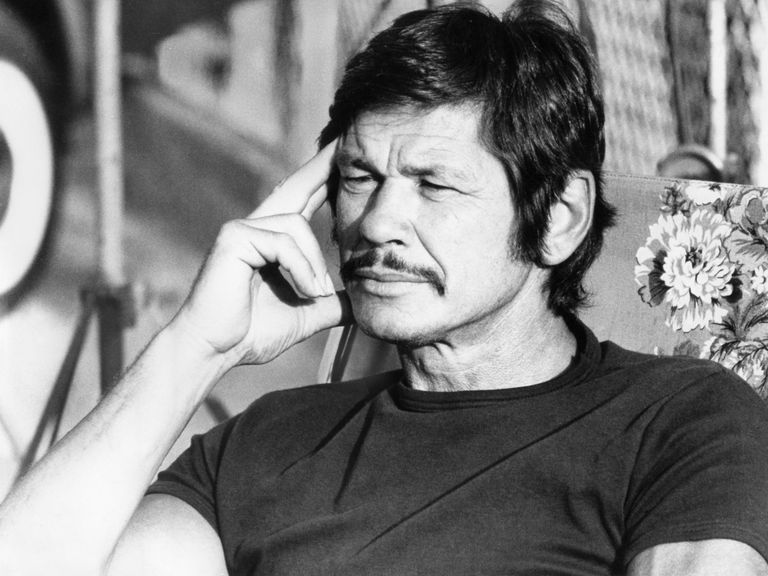
Nothing But A Tall Tale
No Way To Verify This
He also implied that his mother had been neglectful in the same interview. “I worked from dawn til dusk, [and] I realized [the farmers] weren’t going to pay me anything. I never heard from my mother – she never answered my letters, so I just left. There was no way they could keep me there. They didn’t even try. Maybe I scared them,” he told the Daily News. In reality, it is hard to know more about the Bronson family. This might have to do with the fact that they refused to do interviews after Charles Bronson made it big. It is hard to verify what he said. We might never know the whole truth about his childhood. At any rate, there are certain details about his military service that have been proven true.
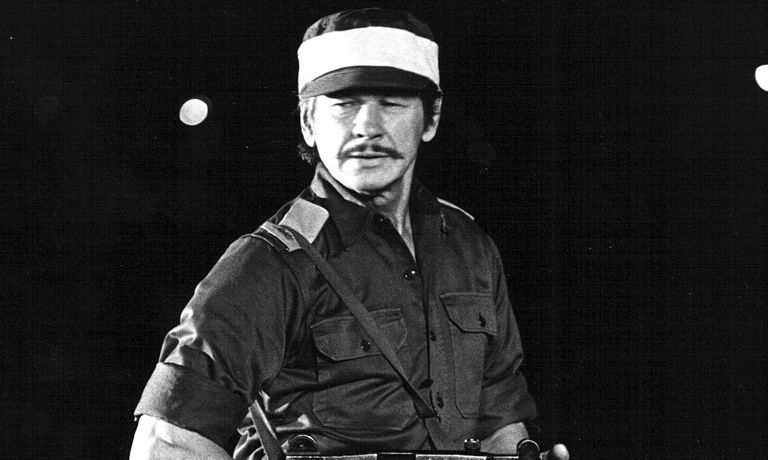
No Way To Verify This
His Service In The War
It is true that he served in the Second World War. As a matter of fact, he was glad to be drafted since it helped him get away from the coal mines. “I was well fed, I was well dressed for the first time in my life, and I was able to improve my English,” he said. “In Ehrenfeld, we were all jammed together,” Bronson explained. “All the fathers were foreign-born – Welsh, Irish, Polish, Sicilian. I was Lithuanian and Russian. We were so jammed together [that] we picked up each other’s accents. And we spoke some broken English. When I got into the service, people used to think I was from a foreign country.”
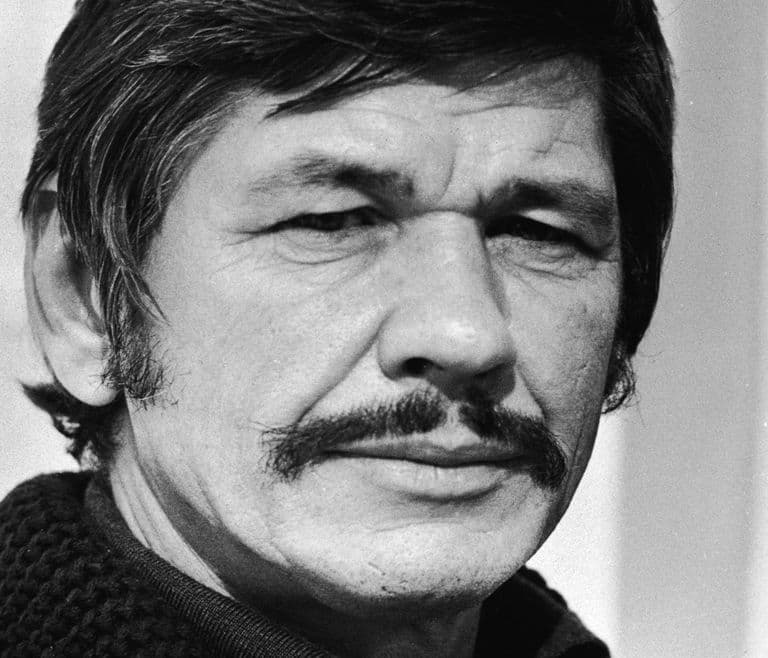
His Service In The War
During His Time As A Serviceman
The exact details of his war record have come into debate after his death. Basically, the official story is that he enlisted in the Air Force in 1943. He then went on to join the 760th Flexible Gunnery Training Squadron and served as an aerial gunner for the 61st Bombardment Squadron in Guam. In “Menacing Face Worth Millions: A Life of Charles Bronson” by Brian D’Ambrosio, we learned more about the actor through his enlistment form. It revealed that he went to high school for four years signed up for the army in Altoona. On top of that, he claimed that he was white and did not have a partner nor children.
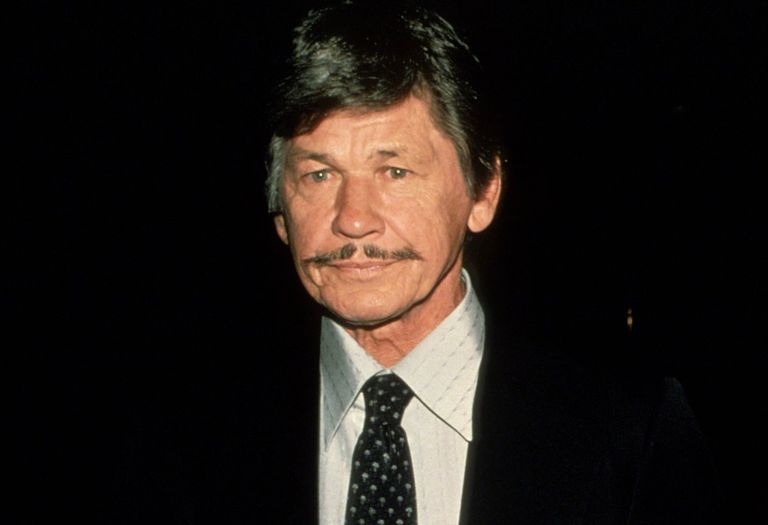
During His Time As A Serviceman
What He Did In The Military
There is no disputing that, but what did he really do in the military? In 2003, The New York Times ran his obituary and suggested that he and his agents had used some exaggeration. “His press releases would say he had been a tail gunner during World War II,” it read. “But one reporter found that Bronson was assigned to the 760th Mess Squadron in Kingman, Arizona, and that he drove a delivery truck during the war.” This was nothing more than misinformation as the men who served with him during the war stepped up to say that this was not the case. The New York Times, as well as other newspapers, issued apologies for this error. D’Ambrosio collected more information about Bronson for the book.
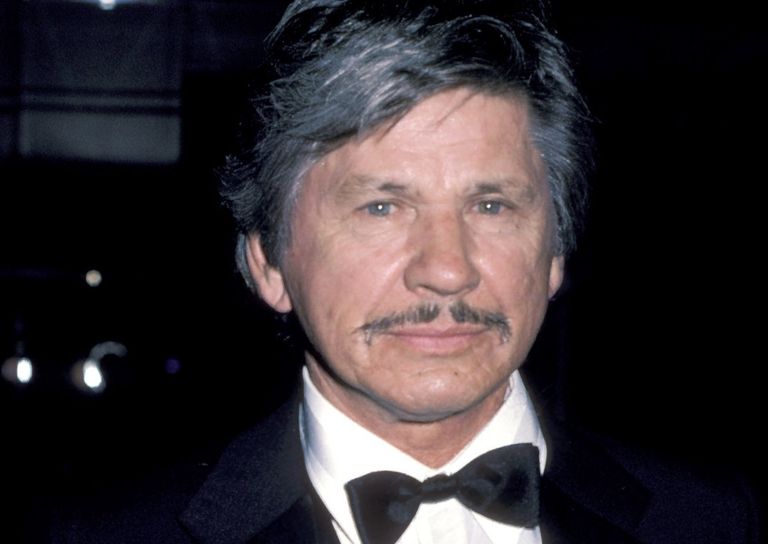
What He Did In The Military
These Parts Were Real
“Notwithstanding Bronson’s propensity of embellishing his machismo for the benefit of publicity and public consumption, the status and extent of his war record bears out the integrity of his comments,” wrote D’Ambrosio. The former miner indeed flew aircraft in Guam and received a Purple Heart for an injury he sustained. “[Bronson] flew more than 25 missions and even sustained a small scar from a bullet wound on his shoulder,” said the writer. “He did drive the mess supply truck in Arizona – but only while awaiting assignment. [And] he was awarded a Purple Heart for wounds sustained during battle.”
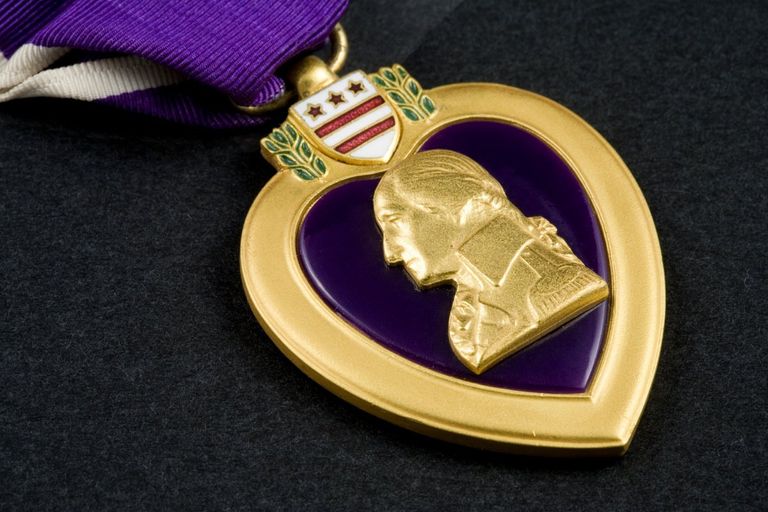
These Parts Were Real
When The War Ended
Despite this, the author himself admitted that “records of the [World War II] period are scarce.” He went on, “Aside from superficial details, nearly nothing is known about Bronson’s life during those years.” In any case, the facts speak for themselves. There is no disputing the fact that he was a hero who earned a Purple Heart to boot. When the war came to an end, he did not plan to go back to the coal mines. He instead worked a series of jobs. Among other things, he was an onion-picker, a bricklayer, and a baker. In the end, he moved to Atlantic City. While he was in Monopoly City, he met a couple of actors and requested a scenery painter job as he had the skills for this role.
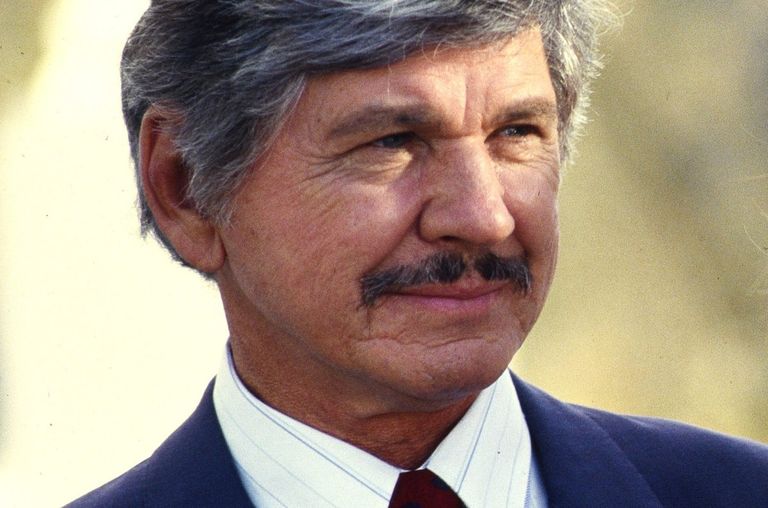
When The War Ended
How He Earned His Big Break
The actors did not just take him up on that offer but also allowed him to act with them! Charles Bronson fell in love with acting and pursued it more seriously. By 1951, he snagged a part in You’re in the Navy Now. Later on, the actor insisted that he got cast in it simply because he knew how to burp on cue. This was the beginning of his illustrious acting career. D’Ambrosio made the suggestion that his military experience changed him. There is a good chance that his service shaped him into the man that the viewers know and love. “Except for the brief summer work stint when he was 13, [the army] was Bronson’s first entry into the world outside Ehrenfeld,” said the biographer.
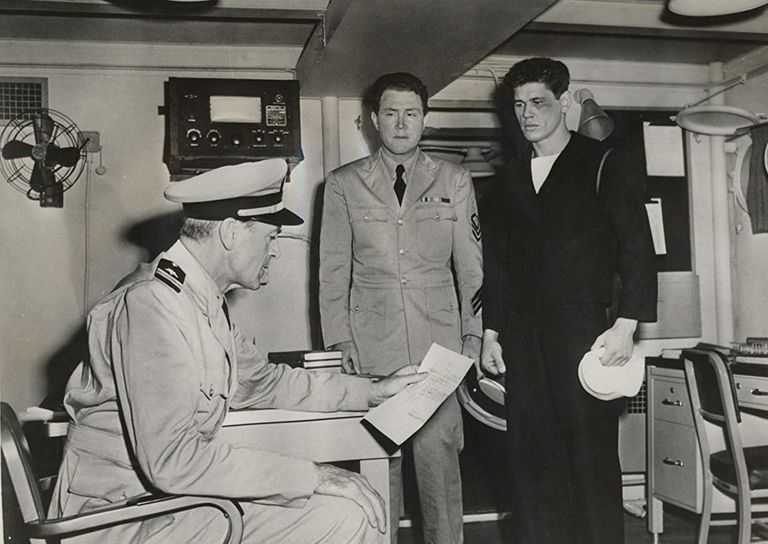
How He Earned His Big Break
Thanks To His Military Service
For one thing, the Second World War seemed to have turned him from an angry young man to a mature adult. D’Ambrosio said that when he first entered the military, Charles Bronson partook in “fights and anti-social behavior” due to feelings of frustration. It is a good thing that he set himself straight during his time in the military. “In the army, [Bronson] met people from different regions, experiences and attitudes, [thus] broadening his experiences,” D’Ambrosio said. “He saw parts of the world he didn’t even know existed, or he wouldn’t have cared to try pinpointing on a map.” When he was a child, he probably did not have access to good education.
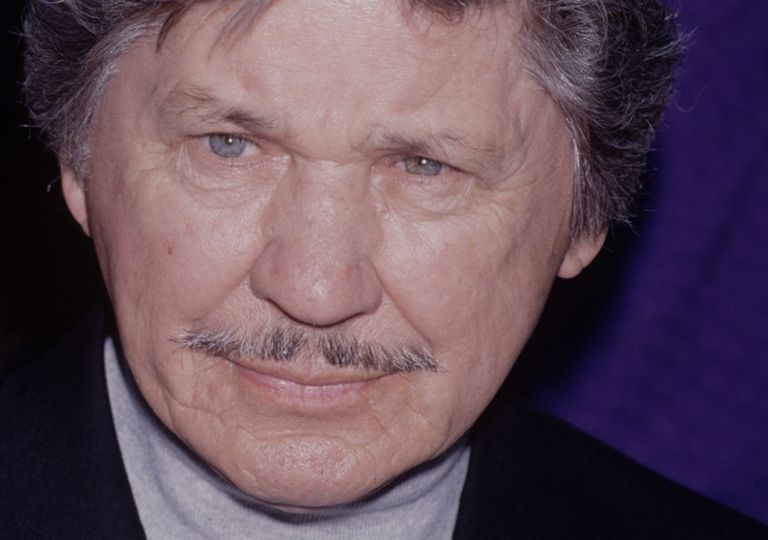
Thanks To His Military Service
His Legacy Lives On
“It was the beginning of an inward journey when [Bronson] began to realize that he was not just a meaningless fragment in an alien universe but connected to places and things greater than his home life,” said D’Ambrosio in reference to the army career of the actor. “He discovered that there was something truly missing from his life: freedom.” In 2003, Charles Bronson died at the age of 81. He was survived by four kids, two stepsons, and two grandchildren at the time of his death. We wonder if he left them words of wisdom before he passed away. At any rate, it looks like he got the chance to reflect on the impact of his film career a long time ago. In 1977, he told The Washington Post that he would like to “do stories about people’s strengths rather than their weaknesses.” The actor explained, “When you see weakness in a hero, you are doing something to his identity. You take something away from the kids, the next generation; you steal away giving them anything to look up to.”
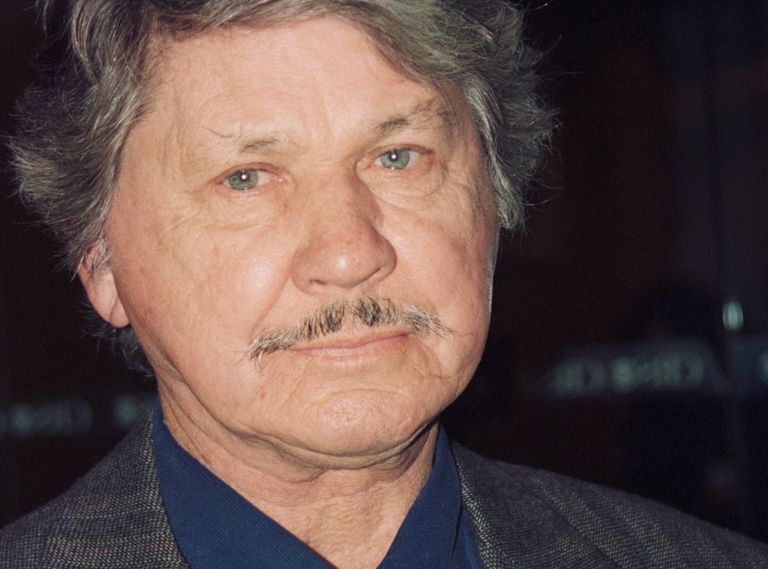
His Legacy Lives On
